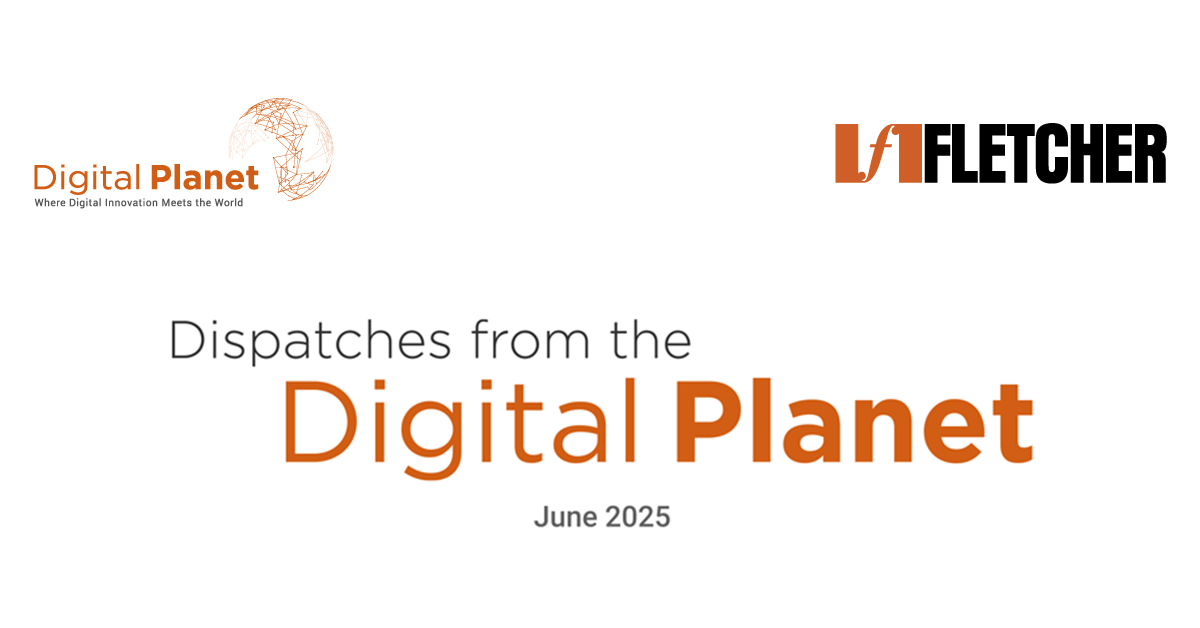
Dispatch from Digital Planet: June 2025
Dispatch from the Digital Planet is a monthly bulletin that talks about new updates in digital innovation across the world and their impact.

Dispatch from the Digital Planet is a monthly bulletin that talks about new updates in digital innovation across the world and their impact.
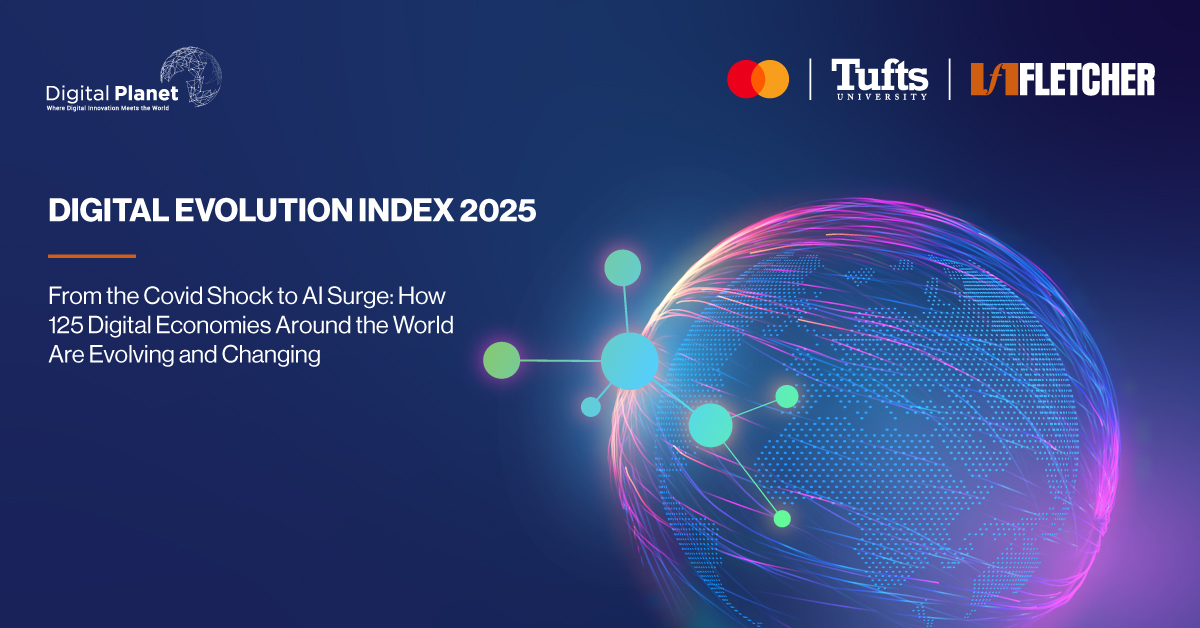
An interactive research platform offering scorecards and insights that track digital competitiveness and trust across economies, equipping decision-makers with tools to foster inclusive, AI-augmented, and data-responsible digital growth.
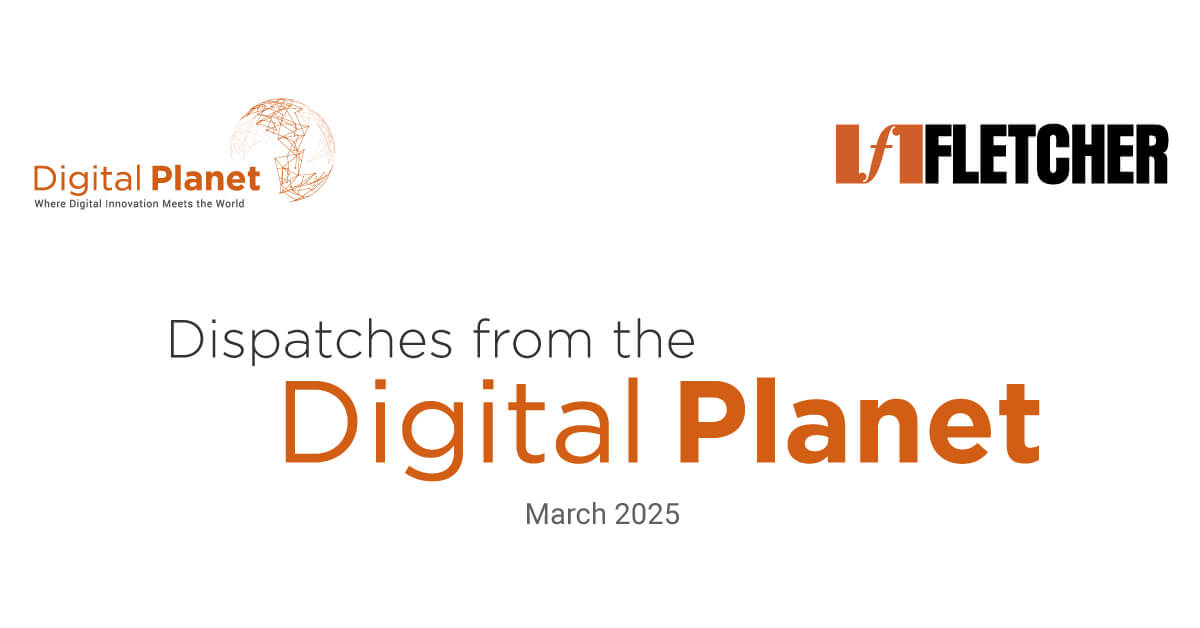
Dispatch from the Digital Planet is a monthly bulletin that talks about new updates in digital innovation across the world and their impact.
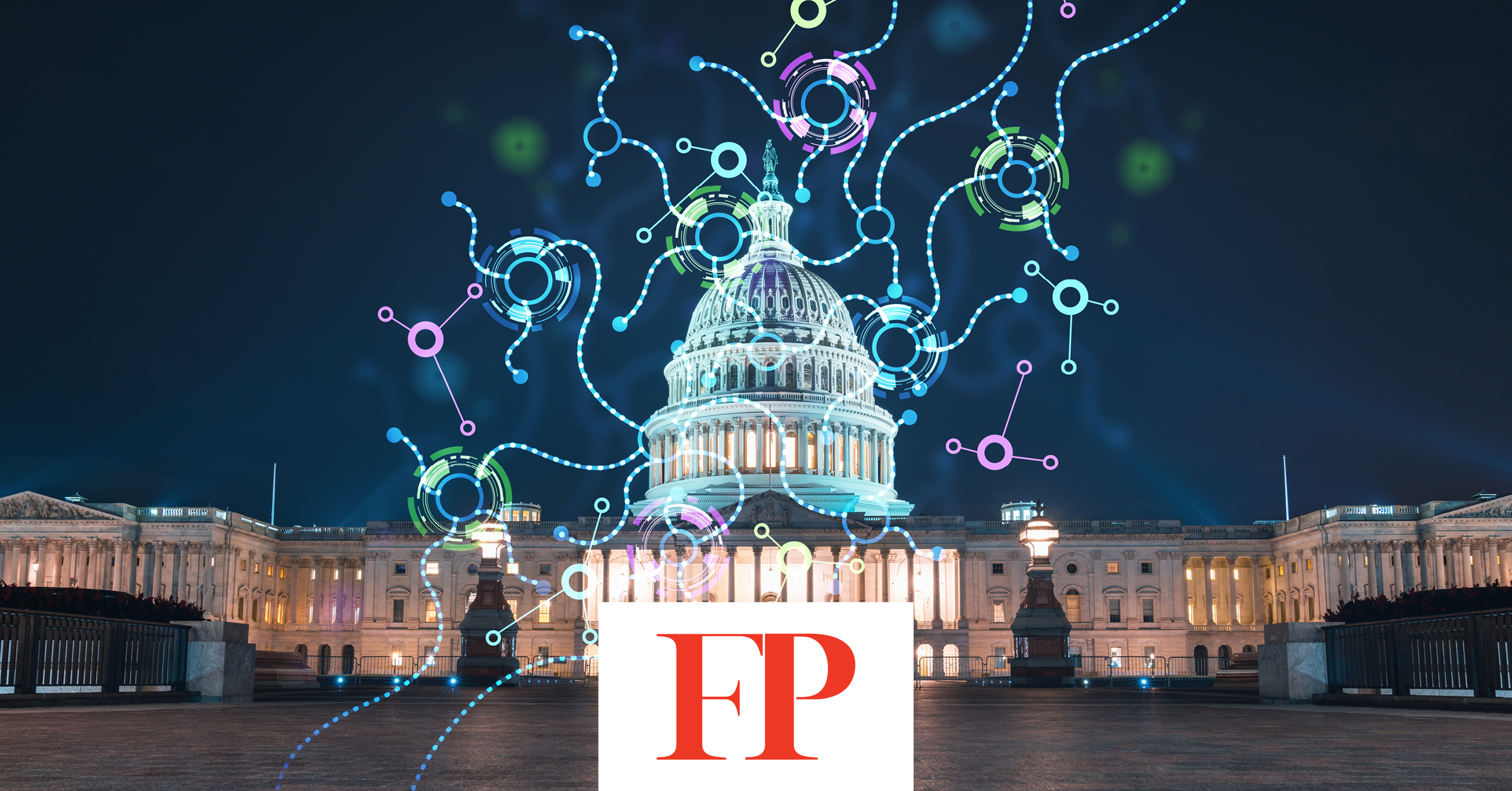
Why hasn’t the messianic urge for “efficiency” hit the tech industry?

Under the proposed rules, 18 countries — including close US allies such as the UK, Canada, Germany, Japan, and South Korea — will enjoy unrestricted access to chips for verified companies

AI expert Bhaskar Chakravorti analyses the growing rivalry between the US and China on AI and Switzerland's possible role.

Join us on Feb 07, 2025 at the Joyce Cummings Center for a student-led symposium exploring how tech/AI is shaping the future of international business under new American leadership. Hear from top experts, discuss global trade, AI’s impact, and gain valuable insights.

Share By Rachel Curry SearchGPT is already dubbed by some as the “Google killer” Arvind Jain, a former Google engineer and now CEO of the enterprise A.I. search platform Glean, never saw Google’s approximately 90 percent market share in online search as overtly anticompetitive—after all, Google always had a superior search product, Jain said. In recent years, however, innovation.

Klarna used an AI-generated CEO video to share financial updates, showcasing 23% revenue growth and AI investments. While innovative, experts warn such moves risk eroding trust in human connection.

Bluesky’s rapid growth, adding 1M users daily post-election, has sparked competition with Threads, Meta’s X rival. Both platforms now vie to fill the void left by X, adapting features to attract users.

Dispatch from the Digital Planet is a monthly bulletin that talks about new updates in digital innovation across the world and their impact.

The Democratic nominees stated vision of AI policy in America is one that balances public safety and progress.

Arvind Jain, CEO of Glean, notes Google’s search quality is declining due to excess ads, especially on mobile. He sees increasing competition, though answer engines lack reliability, needing transparency for user trust.

The concept of Digital Public Infrastructure (DPI) is gaining momentum globally, as countries seek to digitize essential services like identification, payments, and civil registration.

Recent global crises in intelligence, health, and the military have influenced the evolution of data regulation locally and globally.

As polarization grows and tech platforms hesitate to take down misleading messages, false information is gaining traction, Fletcher School experts say
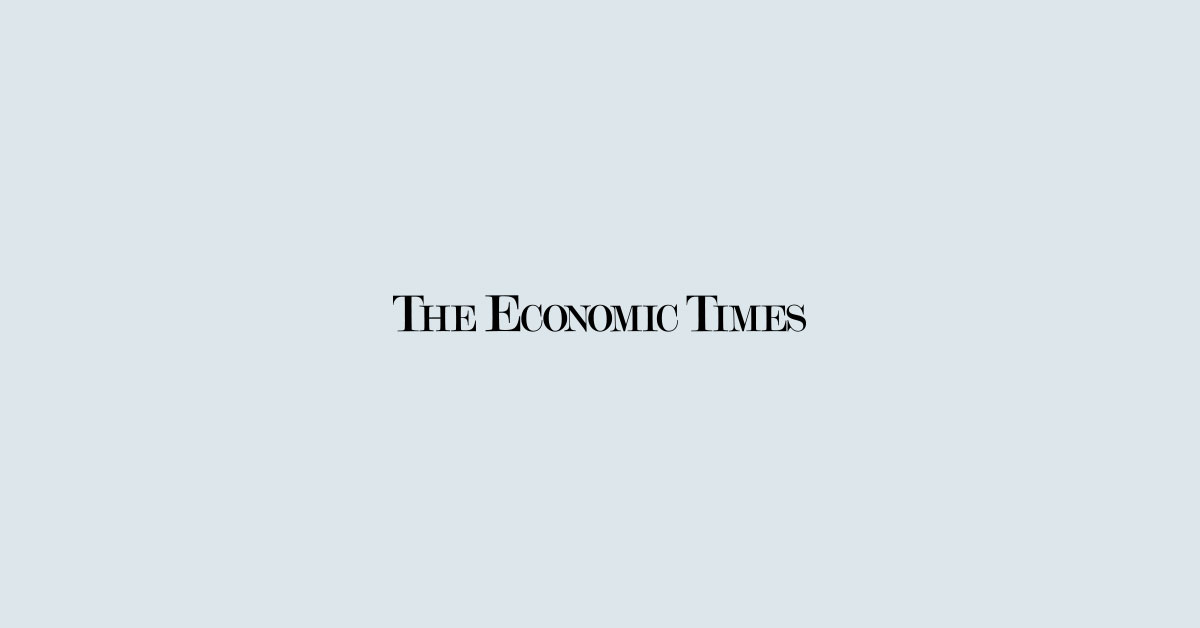
Innovation and a vibrant tech sector continue to give America a competitive edge.

Unlike other big tech companies, OpenAI is the for-profit subsidiary of a nonprofit overseen by the nonprofit’s board of directors. Many media outlets report that this arrangement could soon change.

OpenAI’s Search GPT introduces AI in the search engine market. Trust issues and transparency remain challenges for AI-powered engines. Competition in the search market may drive innovation and diversification.
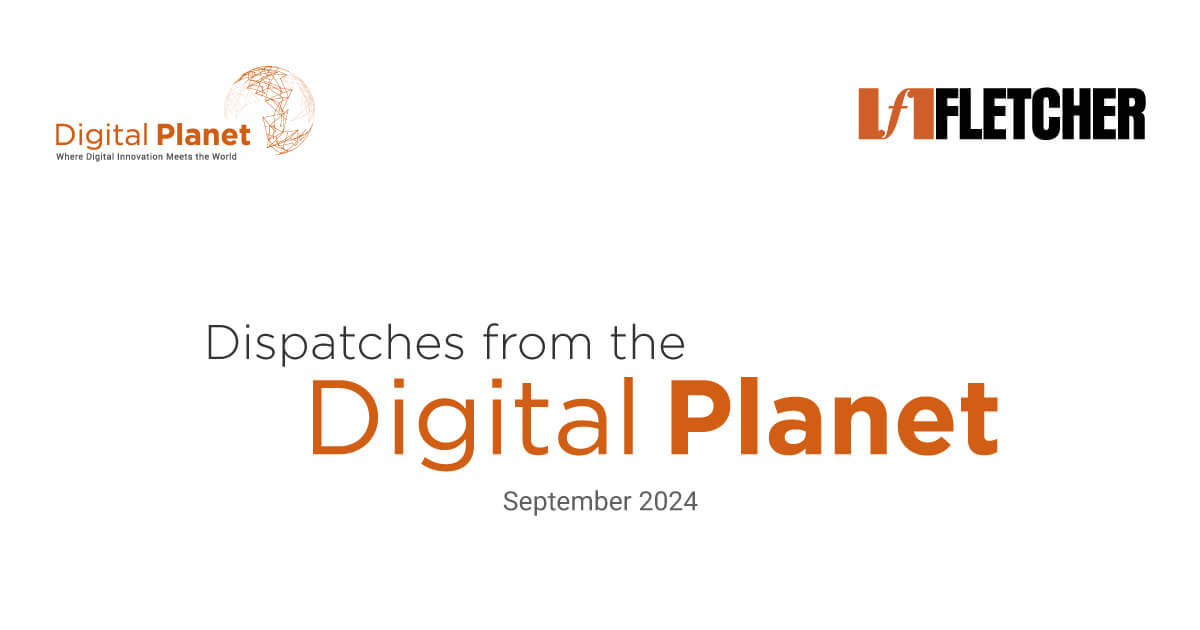
Dispatch from the Digital Planet is a monthly bulletin that talks about new updates in digital innovation across the world and their impact.

Critics say a proposed change could allow large energy users to hide their true emissions.
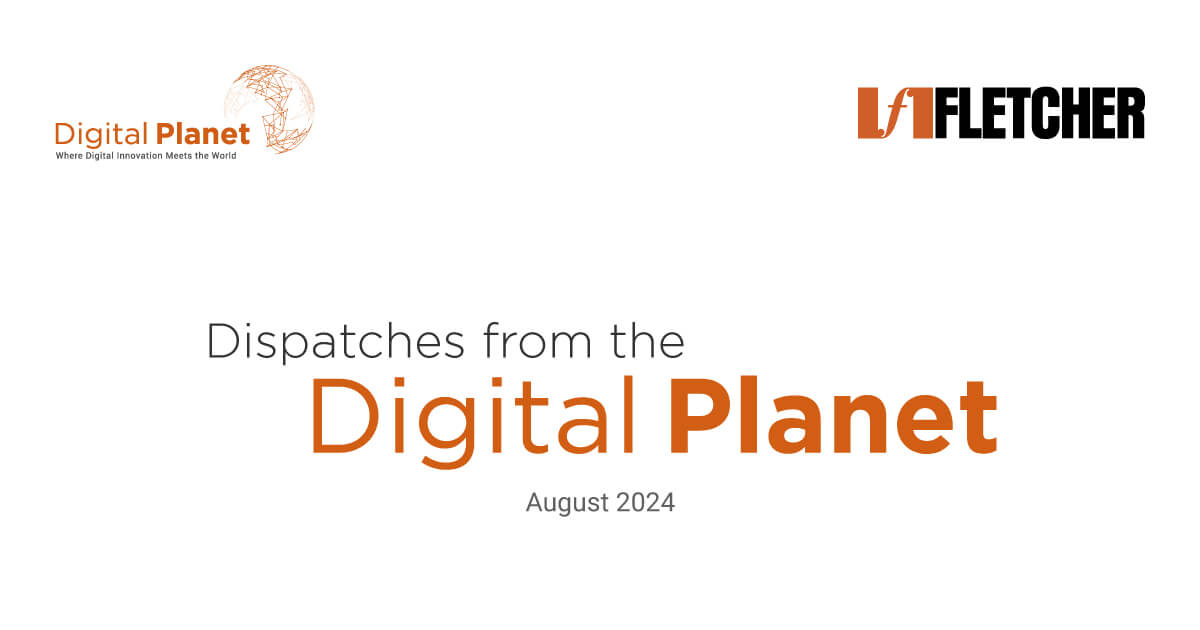
Dispatch from the Digital Planet is a monthly bulletin that talks about new updates in digital innovation across the world and their impact.

A flurry of recent clips, many of them edited or lacking context, laid bare a major challenge for the president as he tries to persuade voters he has the energy for a second term.

Indian billionaires Ambani & Adani attended Modi’s 3rd term swearing-in. Their future is uncertain despite being central to Modi’s vision. Voters want “less BS, more jobs” and may force changes in the relationship between big business and politics.

Economist Bhaskar Chakravorti warns of a crisis in a key Indian economic sector – and talks about where new growth could come from after the elections.
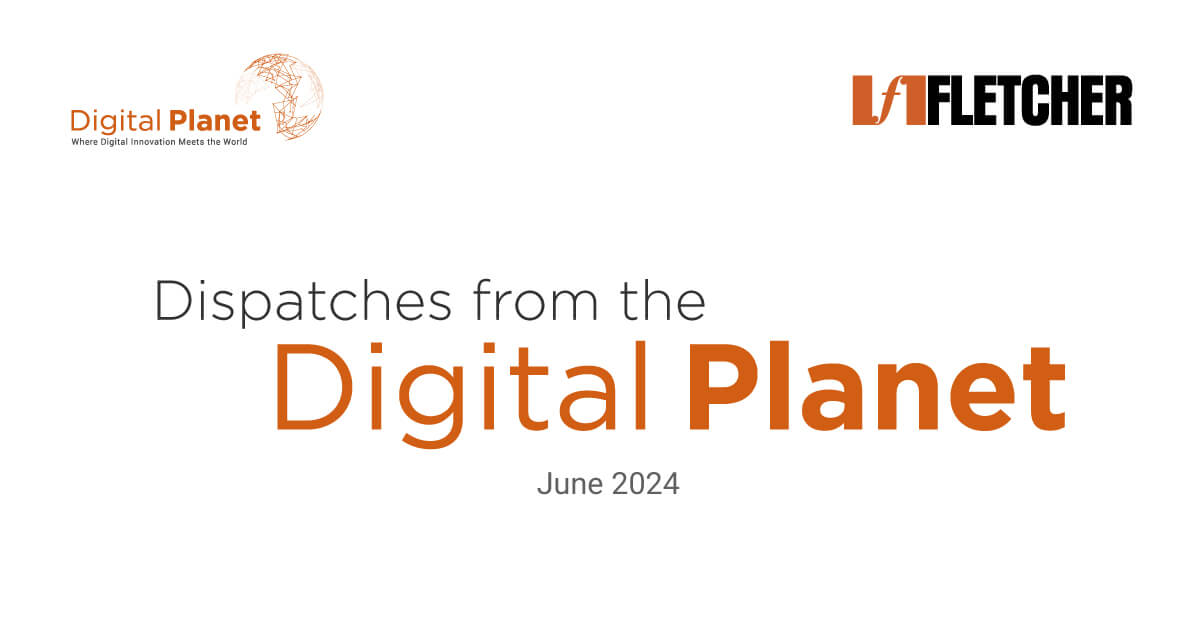
Dispatch from the Digital Planet is a monthly bulletin that talks about new updates in digital innovation across the world and their impact.
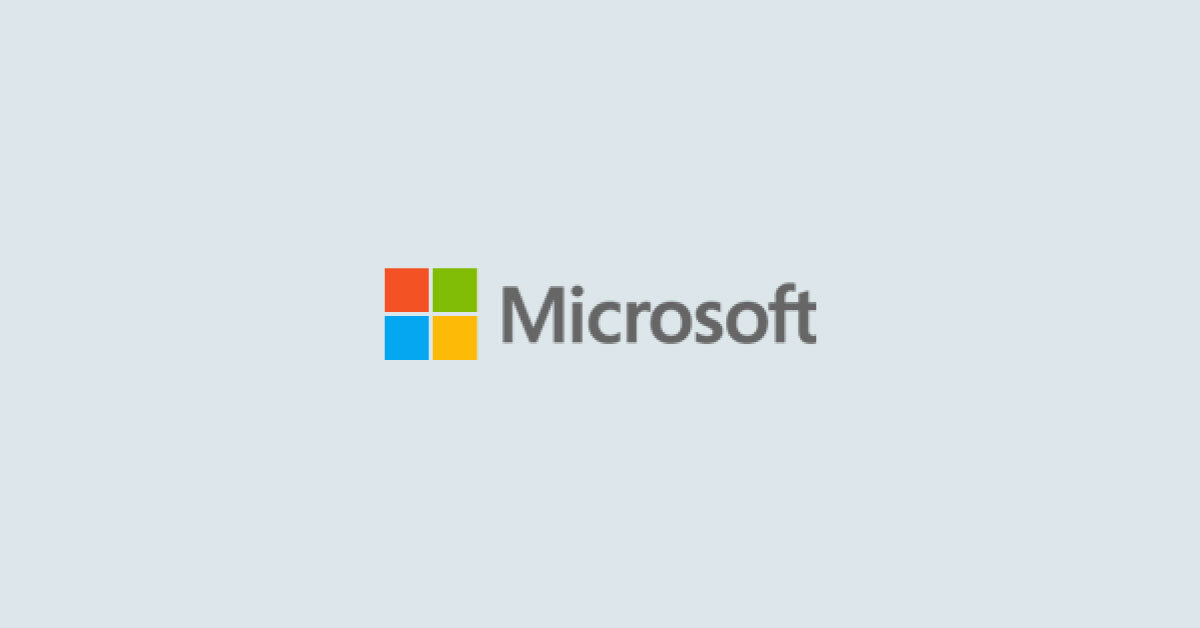
Fabio Correa Xavier, CIO of São Paulo’s Court of Accounts, leverages AI to improve oversight of $100bn in government spending.

US scrambles to keep coal plants open for AI boom, risking clean energy targets. Can they balance next-gen power with a greener future?

When India faced similar sponsored protests against CAA, NRC and blockade of national highways for months together in the name of ‘farmers protests’, the US was pontificating India on respecting dissent and democratic norms

Global elections test women’s power: War-torn Ukraine sees women rise in army, while Iran simmers with protests. Can a record number of women candidates translate to leadership gains?
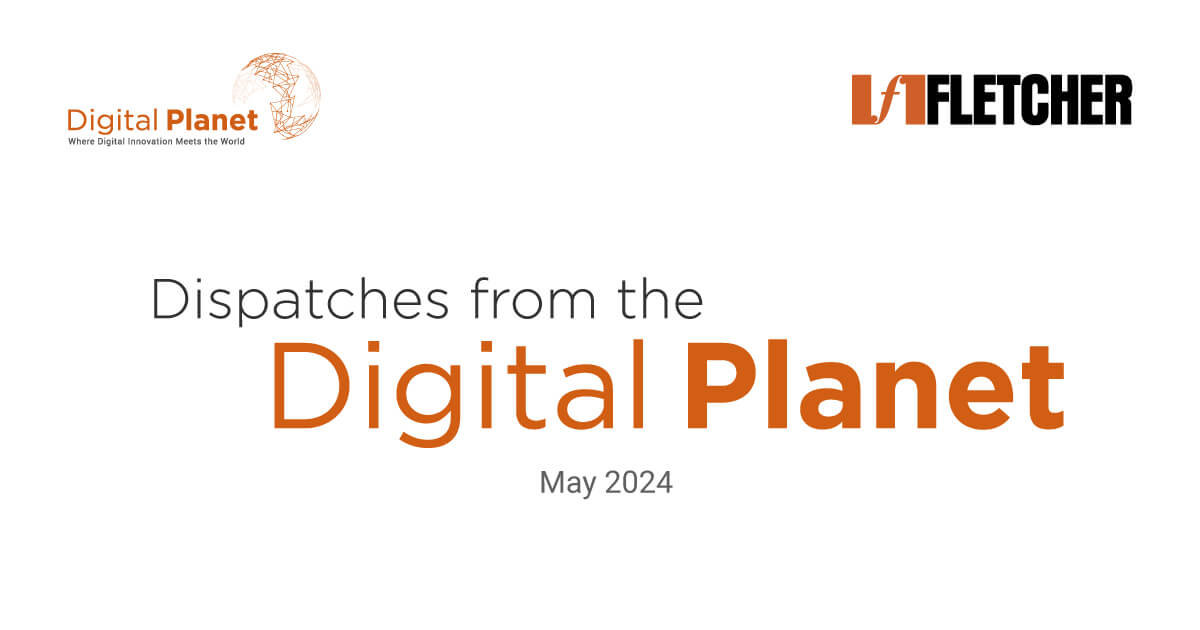
Dispatch from the Digital Planet is a monthly bulletin that talks about new updates in digital innovation across the world and their impact.

As AI advances, it confronts major trust issues due to concerns like disinformation, safety, ethical dilemmas, bias, and environmental impact. Addressing these challenges involves a unified strategy: training, empowering, and involving humans in AI oversight.

American universities face protests amid broader societal tensions, notably over the Middle East crisis and upcoming U.S. elections, raising concerns about global stability.

Meta and Google stand ready to reap a TikTok ban’s rewards.
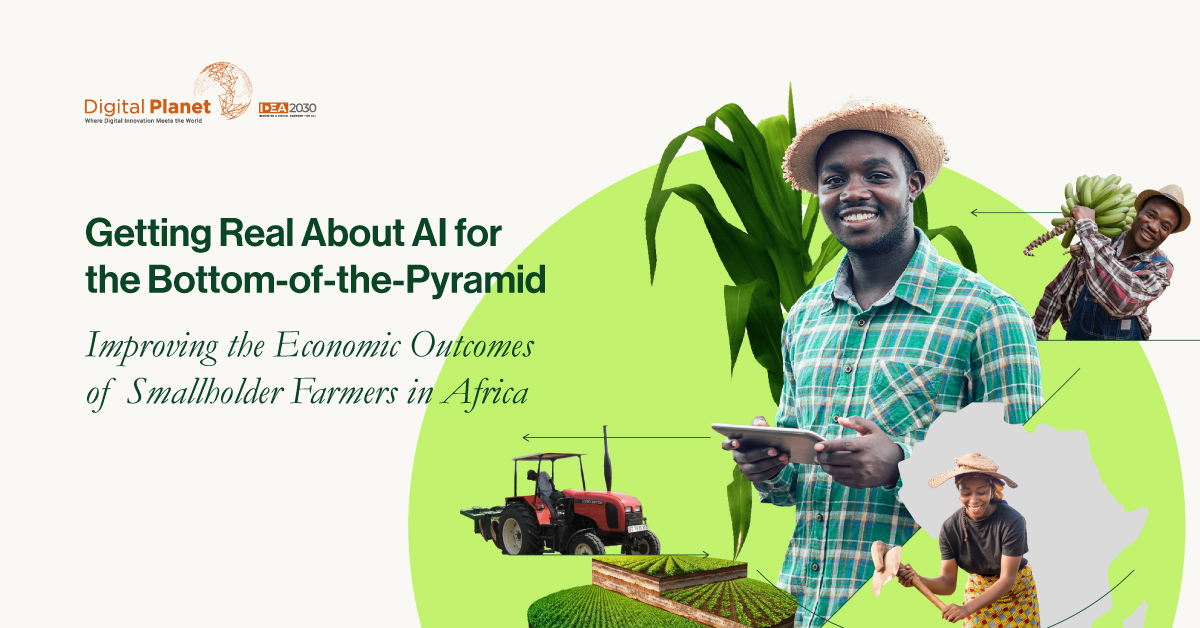
Sub-Saharan Africa’s agriculture, dominated by smallholders, struggles with low productivity. AI tools like Crop AI offer scalable solutions, potentially generating $6.1 billion in revenue, impacting millions of farmers, and advancing education, aligning with sustainable development goals.

With India facing another election, establishing a Ministry of AI is vital for economic leverage and national security against technological warfare.

Narendra Modi, challenging tradition with innovation, flaunts his recycled plastic vest, embodying contradictions as he shapes India’s destiny.
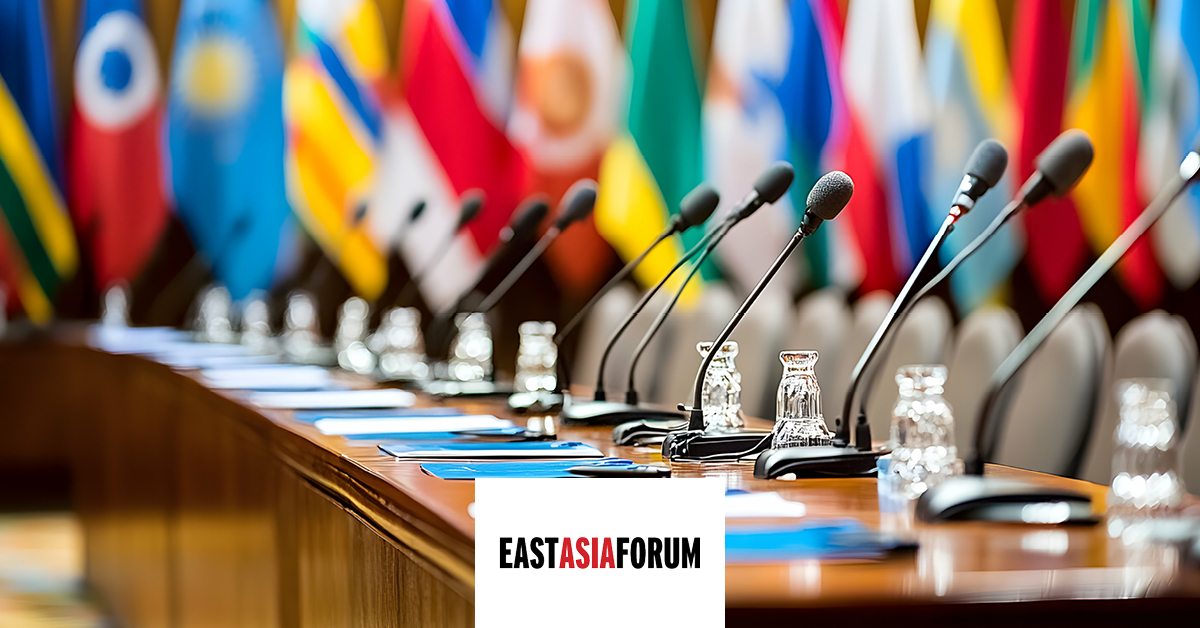
The BRICS group exists in a symbiotic relationship with the Western-led global institutions while engaging in new economic initiatives. Yet it can only become a real alternative if it improves the conditions of the Global South.

Dispatch from the Digital Planet is a monthly bulletin that talks about new updates in digital innovation across the world and their impact.

Affordable Connectivity Program ending soon due to funding depletion, impacting 18.4M users. Lifeline support offers $9.25 off for eligible participants.

Having a digital currency could make payments more efficient, but critics have raised privacy concerns.

Food security is among the most pressing issues facing the world today. The International Fund for Agricultural Development’s (IFAD) 47th annual meeting will be held on February 14 and 15. Bhaskar Chakravorti joins IFAD’s Governing Council for an in-depth discussion on innovating for a food-secure future.
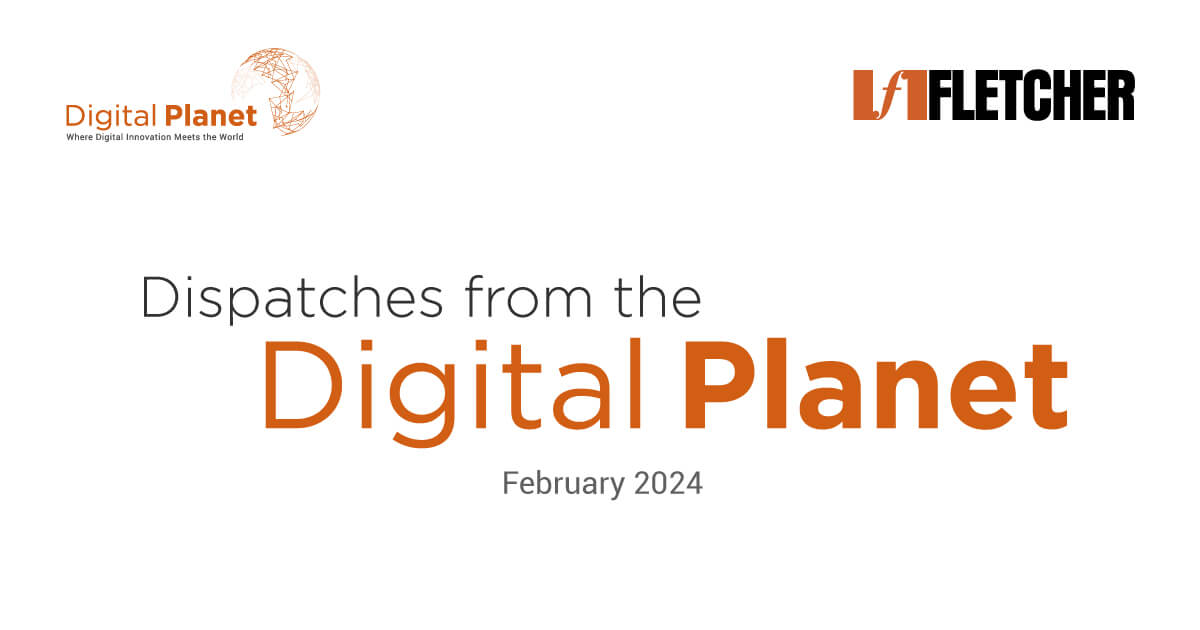
Dispatch from the Digital Planet is a monthly bulletin that talks about new updates in digital innovation across the world and their impact.

Amazon’s iRobot deal collapse led to CEO’s departure and layoffs. Echoing Adobe’s Figma setback, it sparks concerns in the startup realm about exit challenges for specific firms.
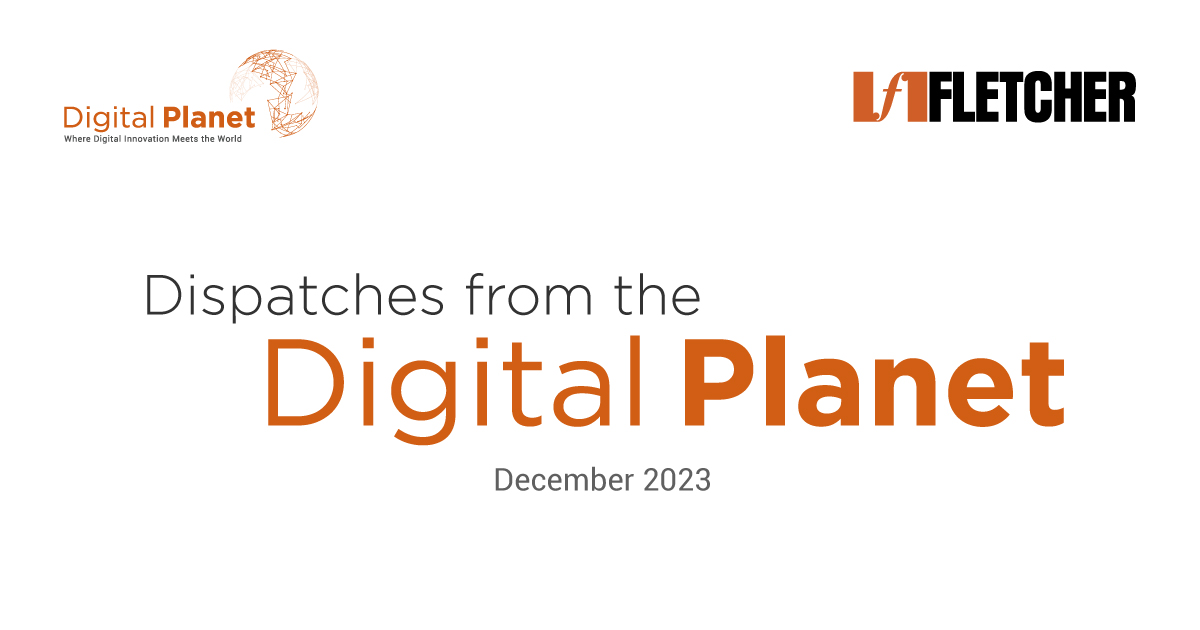
Dispatch from the Digital Planet is a monthly bulletin that talks about new updates in digital innovation across the world and their impact.

As the Global AI race intensifies, we mapped emerging AI leadership across data, rules, capital, and innovation.

The board is supposed to stop OpenAI from veering from its mission of building technology that benefits humanity.

OpenAI’s Sam Altman’s uncertain move to Microsoft prompts talent poaching. Industry’s AI integration race intensifies, impacting consumers. Experts caution about autonomous AI’s unpredictable future, raising concerns over relinquished control.
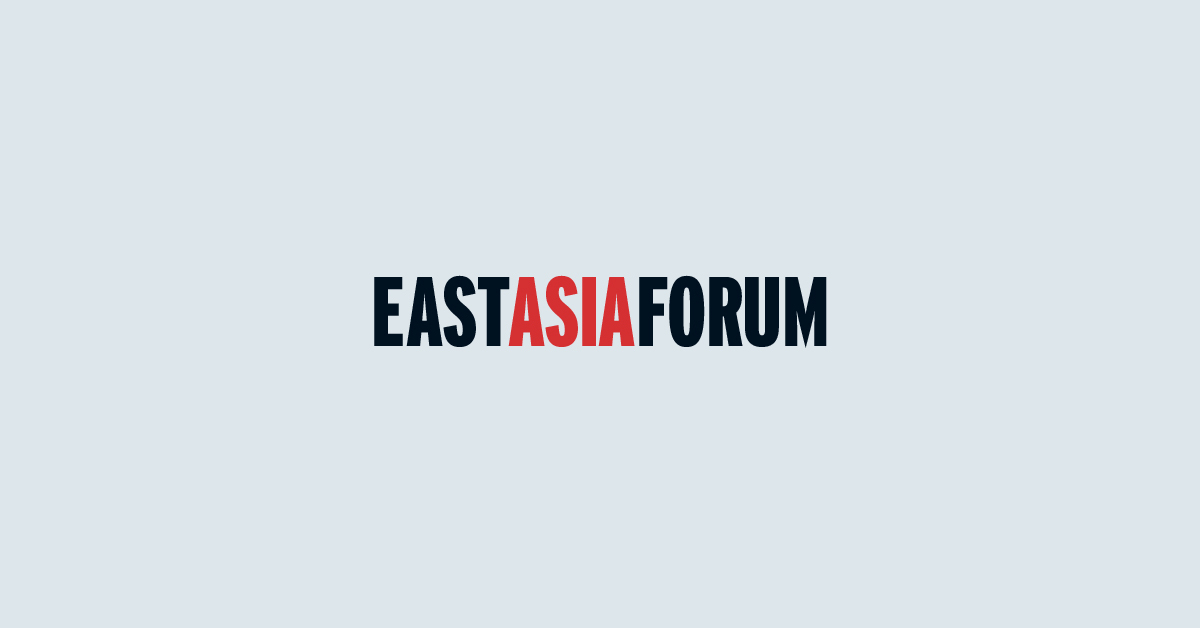
This article highlights how the BRICS
group is falling short of their aspiration to be a champion of the Global South. Mihaela and Ravi explore how the group can shoulder responsibilities commensurate with its weight and heft, and deliver the greatest good for the greatest number in the Global South.

India aims for a $32 trillion GDP by 2047, eyeing the world’s second-largest economy by 2075. Rising incomes, demographic shifts, and a 26% Rich segment by 2047 drive growth. Indian B2C seeks global expansion, facing challenges for opportunities across industries.
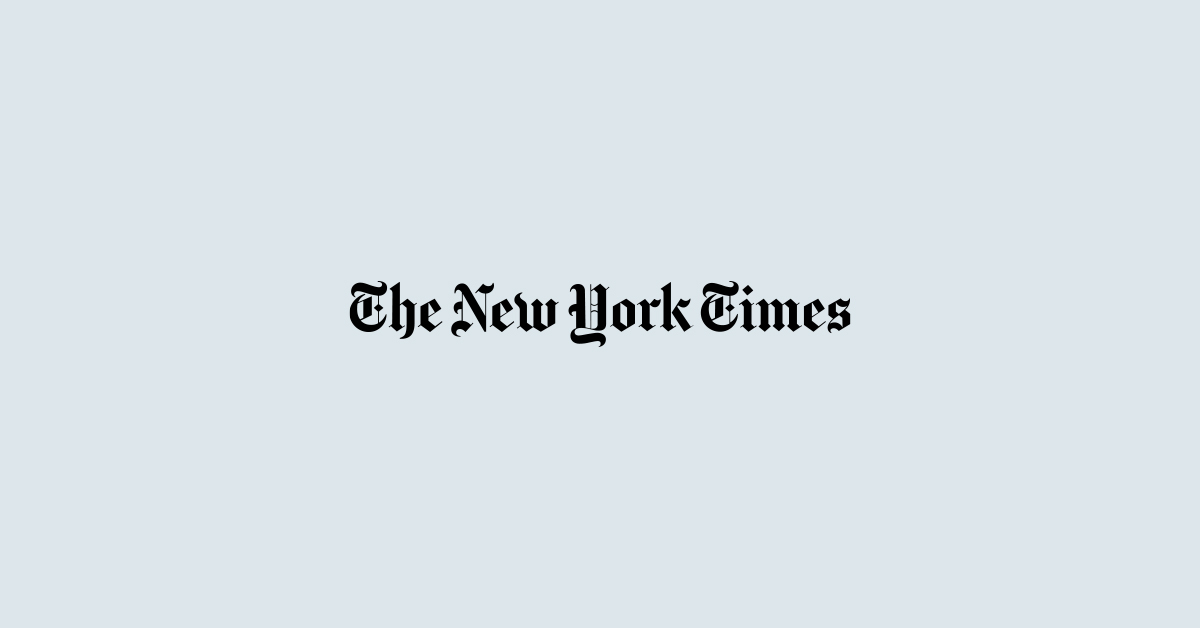
Twitter X, led by Musk, faces escalating hate speech and misinformation, causing a decline in user visits and ad revenue. Musk’s controversial decisions raise concerns about the platform’s commitment to its values, notably during the Israel-Hamas conflict.

On the sidelines of the 78th UNGA, Digital Planet co-hosted a panel discussion with Mastercard on the opportunities and challenges in the digitalization of government programs and services and how public-private partnerships can deliver on the promise of a more transparent, inclusive, efficient, and resilient governance and help bridge the gap between citizens and governments.

IDEA 2030 Council members Ravi Shankar Chaturvedi and David Porteous collaborated with Priya Vora and Peter Rabley on this timely piece about why Digital Public Infrastructure matters in emerging markets.

Meta unveils “Meta AI”, a chatbot for its platforms, challenging OpenAI’s ChatGPT. Powered by Bing, it merges with Instagram, WhatsApp, Messenger, and introduces celebrity chatbots.
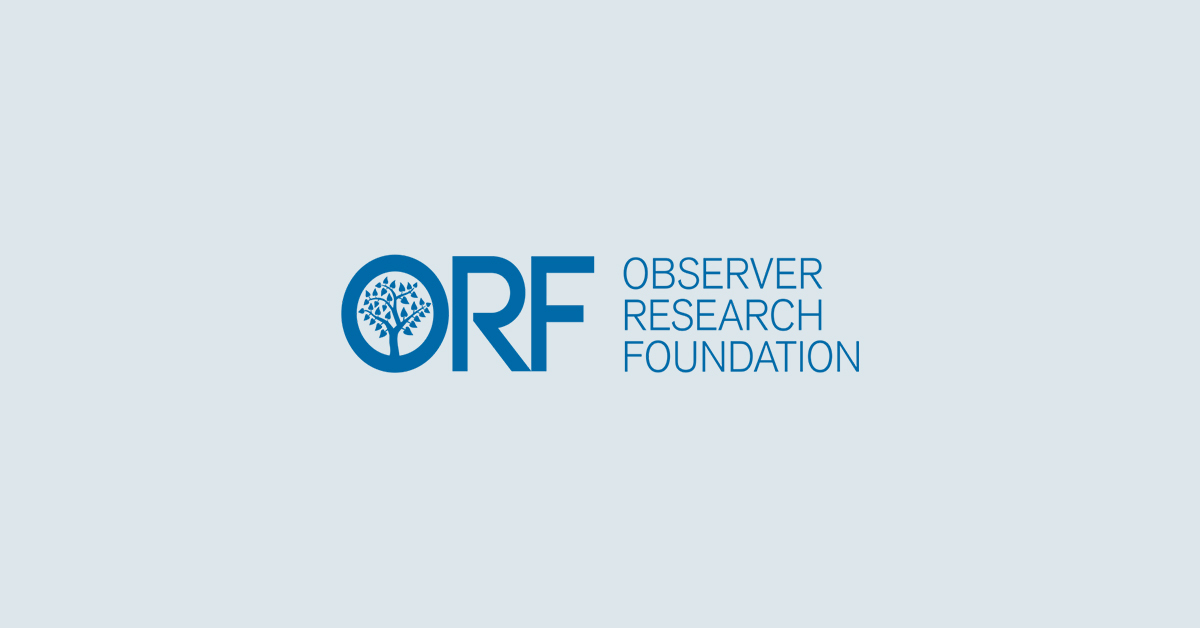
There is growing consensus that digital payments can facilitate financial transactions and help boost economic growth in both developed
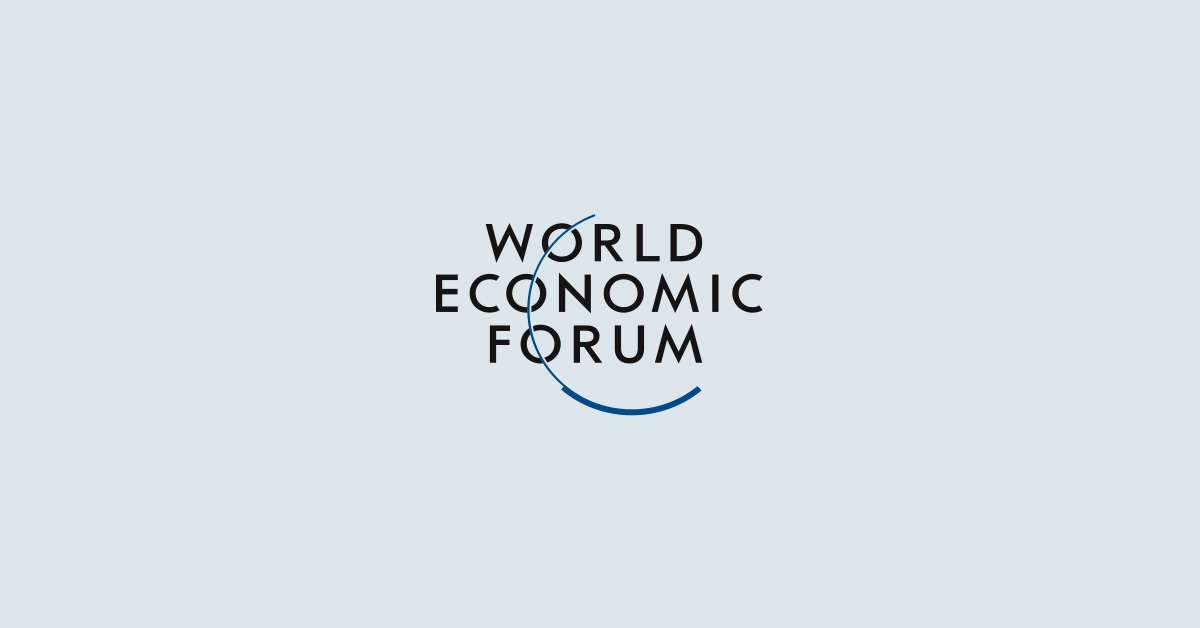
Nations have long invested in physical infrastructure: the walls, bridges, highways and other structures that support everything we do. In today’s technological age, there is an equal need to enhance the digital architecture necessary to carry the online load.

Biden joins G20 in India; PM Modi seeks global prominence. Concerns over civil liberties under Modi’s leadership. Experts from Tufts & Yale discuss.

Landing on the moon’s south pole was a considerable technological achievement. But realizing Narendra Modi’s dreams of industrial supremacy will require getting over a series of roadblocks.

A new survey says many executives underestimate the impact of climate change. Associations have an opportunity to change the conversation.

Despite recent extreme weather, just 19% of CEOs think of climate change as a serious risk to business, per a PricewaterhouseCoopers survey.

India’s watchdog concludes 3-year Adani probe. Expectations of mild impact on Adani Group due to weak investigation and complex corporate laws. Adani denied wrongdoing. Sebi faces pressure. Potential for minimal to groundbreaking outcomes in report.

AI’s impact on elections, healthcare, jobs, and more dominate headlines. Global AI regulation lacks clarity; EU’s risk-based approach stands out. Uncertainty surrounds AI’s effects, posing challenges for oversight. Balancing innovation and control is key amid geopolitical concerns.

We studied the role of Systems Orchestrators in driving systemic changes on the ground to boost digital ecosystems and create jobs. We found that these orchestrators bring distinct advantages to transforming perceptions in the region.
In collaboration with Dalberg

A new report from the McKinsey Global Institute says some will lose their jobs and low-wage workers are the most likely to be hit.

The social media giant is doubling down on its open source approach, in contrast to Google, Microsoft and OpenAI

According to the latest Henley Passport Index, India has visa free access to 57 countries around the world. But what does this mean for the world’s most populous country and its access to foreign nations? How powerful is the Indian passport?

FL Gov. DeSantis’ campaign shared a video on Twitter using AI-generated images of Trump hugging Fauci to criticize his decisions. Real and fake images were blended, making it hard to distinguish.
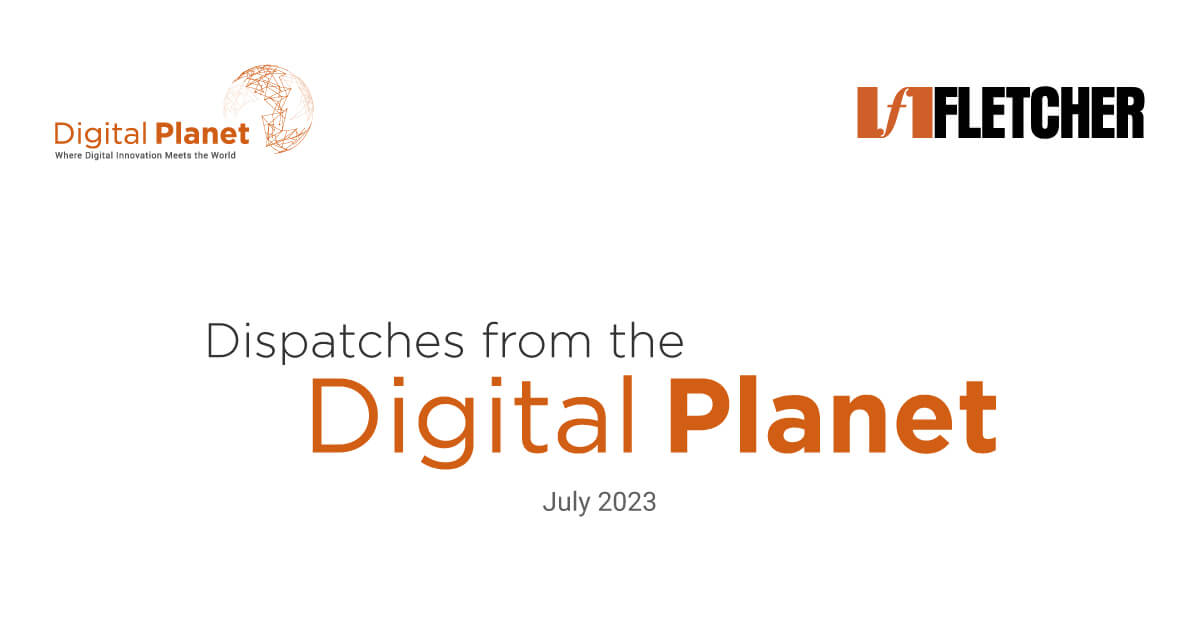
Dispatch from the Digital Planet is a monthly bulletin that talks about new updates in digital innovation across the world and their impact.
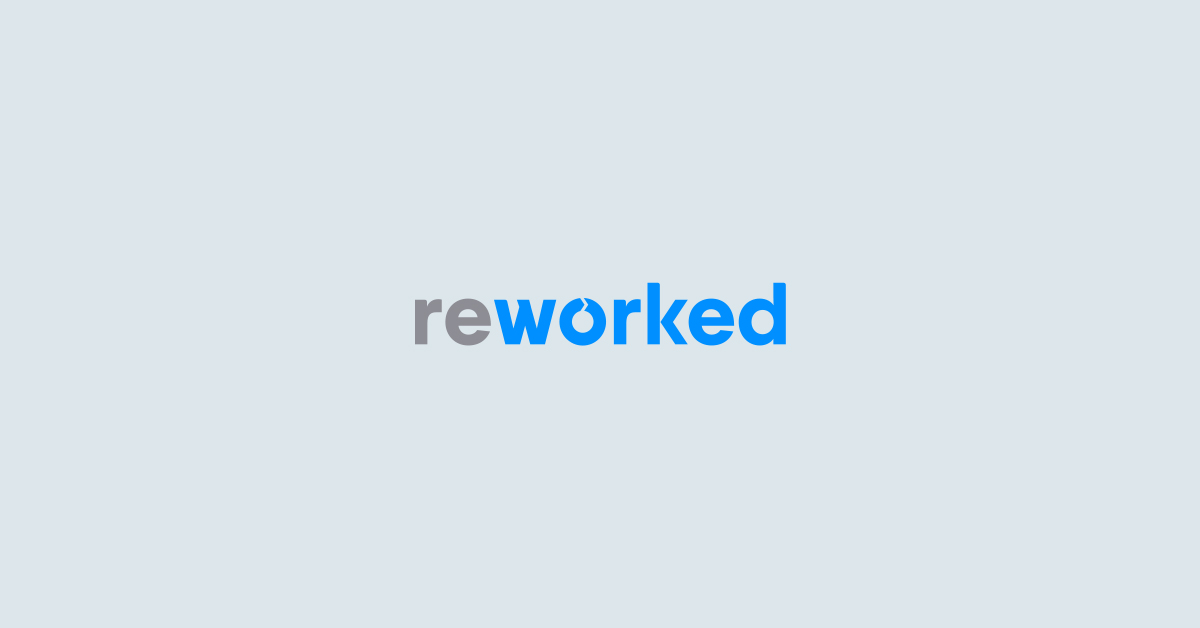
Clickbait aside, leaders should pay attention to predictions about the future of work. Here’s why they’re important — even when they miss the mark.

Threads arrival sparks speculation on Twitter’s future, Bhaskar Chakravorti shares insights in Scripps News interview.

Bhaskar Chakravorti discusses Threads, Twitter’s rival, and its connection to Instagram, fueling rapid growth and Elon Musk’s response.

The industry already struggled to recruit a diverse workforce. Last week’s ruling could make things worse.

Can AI be humanity’s savior rather than its threat? Explore the potential of AI in the pandemic response and the challenges that lie ahead.

Indian Prime Minister Narendra Modi and President Joe Biden look to deepen their ties during Modi’s visit to the U.S.

Elon Musk and Mark Zuckerberg clash as their respective companies, Meta and Twitter, compete in the social media space.

The Facebook parent company is betting that more job security and innovations in artificial intelligence will boost the internal mood as well as the company’s bottom line

The cost of operating the systems is so high that companies aren’t deploying their best versions to the public.
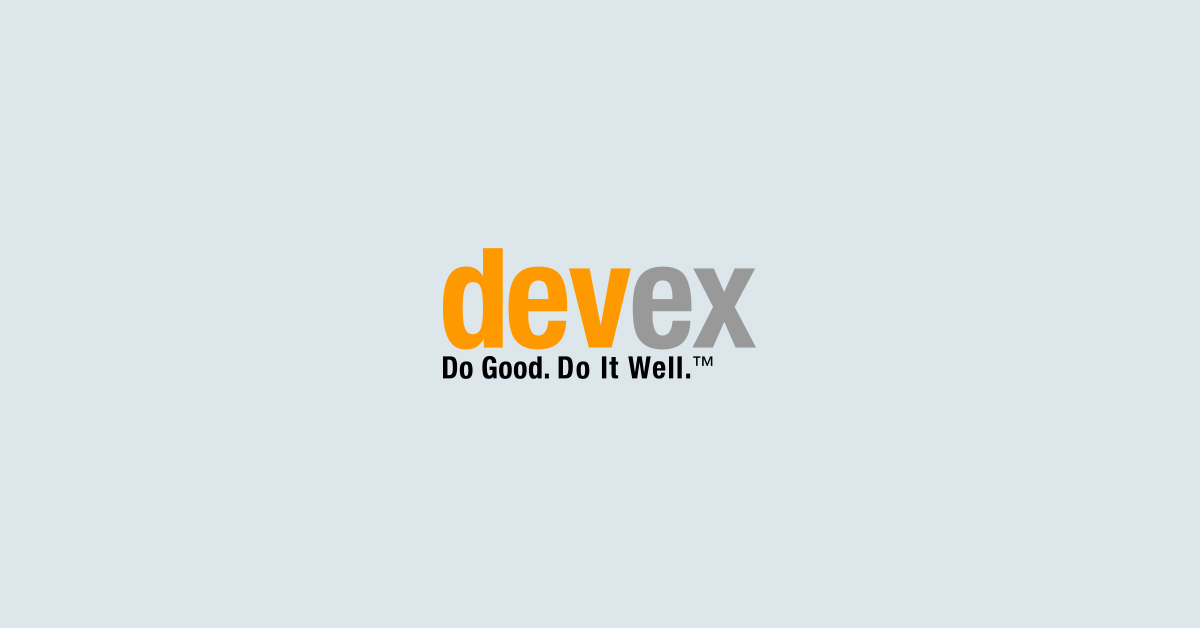
The Indian-born former Mastercard executive has a fanbase across the financial world who are convinced he can deftly reform the World Bank for the modern era. But it's a time of polycrisis and competing demands, making it a tough task.
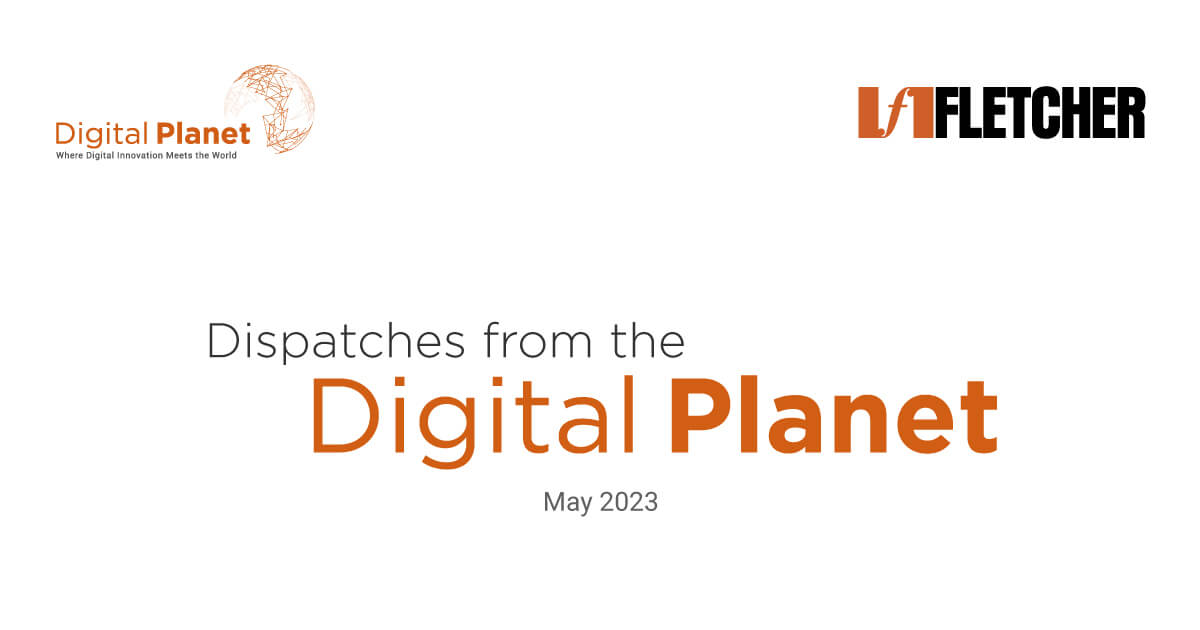
Dispatch from the Digital Planet is a monthly bulletin that talks about new updates in digital innovation across the world and their impact.

A half-dozen current and former employees told The Washington Post that they worry new layoffs this week could endanger content moderation.
In this second edition of the case compendium, we cover three enterprises working in the education technology (ed-tech) and upskilling industry in three distinct emerging markets.

The inventor of the first Apple computer Steve “Woz” Wozniak tells us of his fears that AI will supercharge scams.

Tufts University’s global affairs program has found a central place in dialogue about major international conflicts, especially war in Ukraine.

Innovation drives global sustainability with private sector involvement unlocking immense value. Case studies emphasize tech’s role in fostering inclusion, using insights from the Nine A’s.

As data privacy becomes increasingly scarce, what is the role of government regulation?

The scramble to win the GPT race could divert essential resources from the development of more socially meaningful uses of AI.

Inflation, anti-ESG movement and a war on ‘woke’ politics are hurting the diversity, equity and inclusion push at companies.
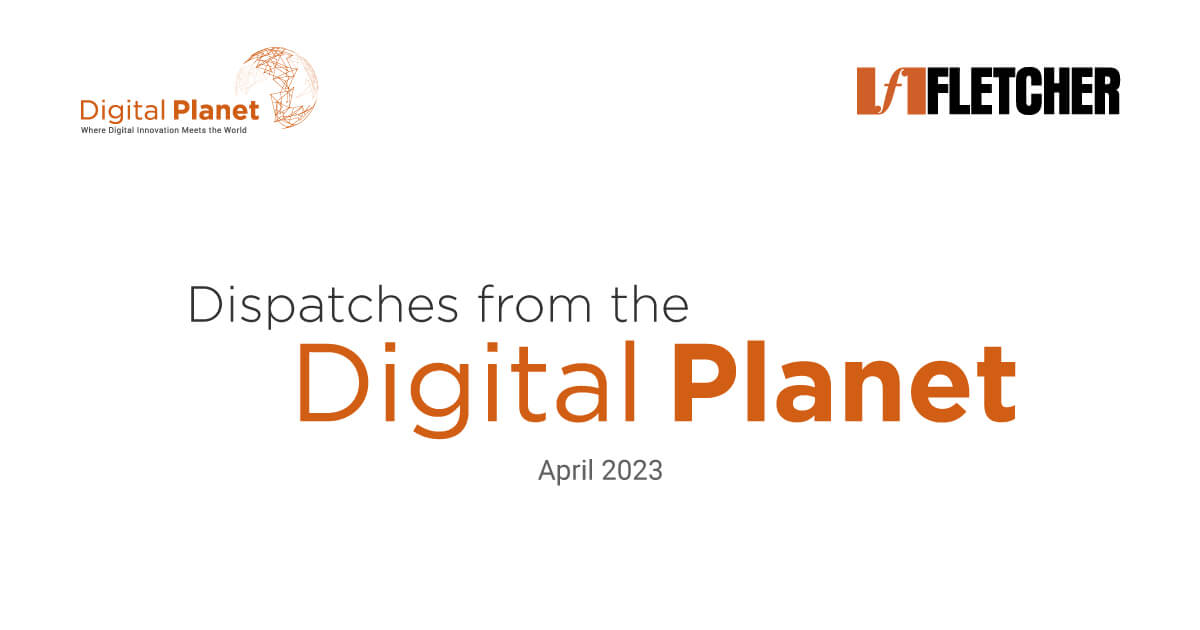
Dispatch from the Digital Planet is a monthly bulletin that talks about new updates in digital innovation across the world and their impact.
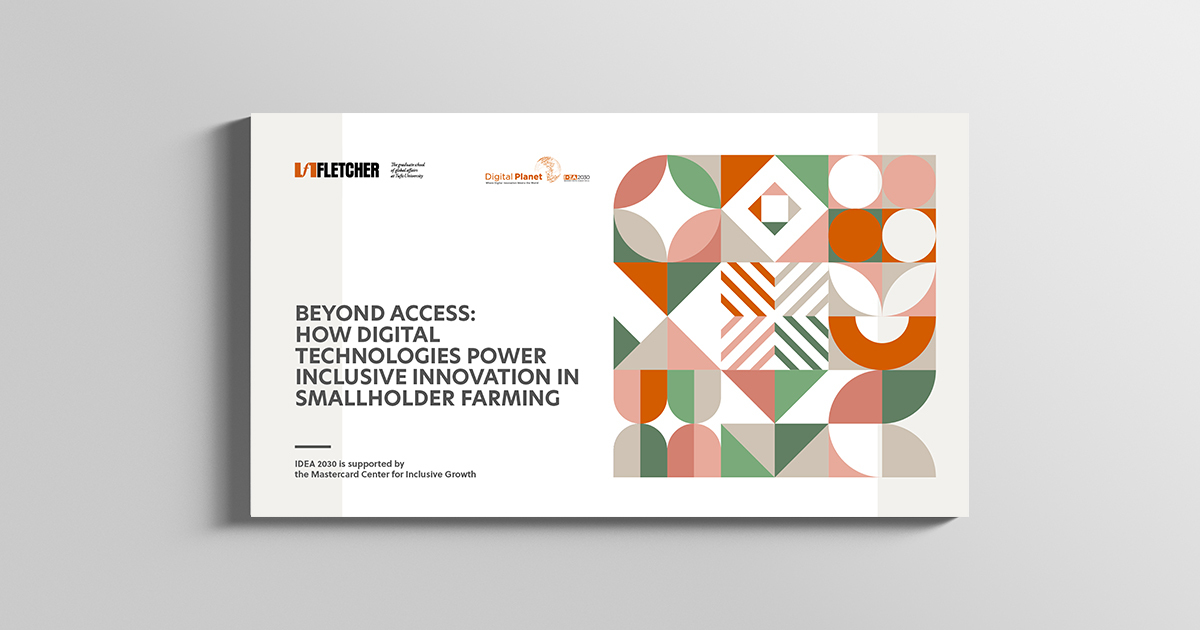
In this second edition of the case compendium, we cover three
enterprises working in the education technology (ed-tech)
and upskilling industry in three distinct emerging markets.
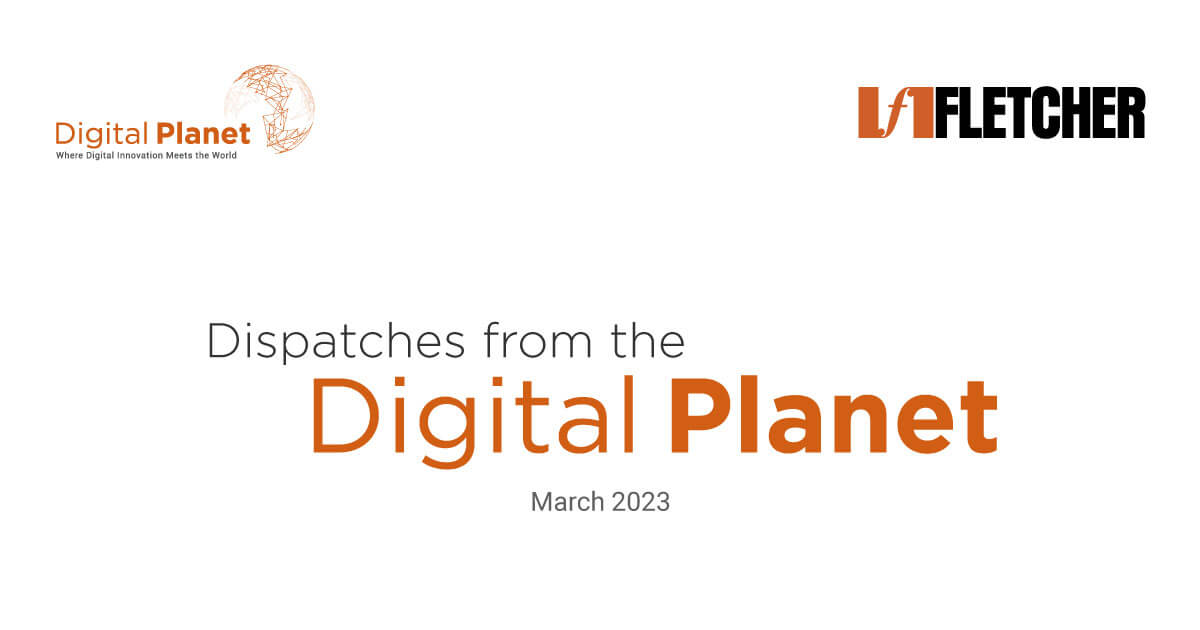
Dispatch from the Digital Planet is a monthly bulletin that talks about new updates in digital innovation across the world and their impact.

Women remain under-represented in high-paying technical and decision-making roles in STEM professions – a scenario that exposes the Achilles’ heel of the entire technology industry.
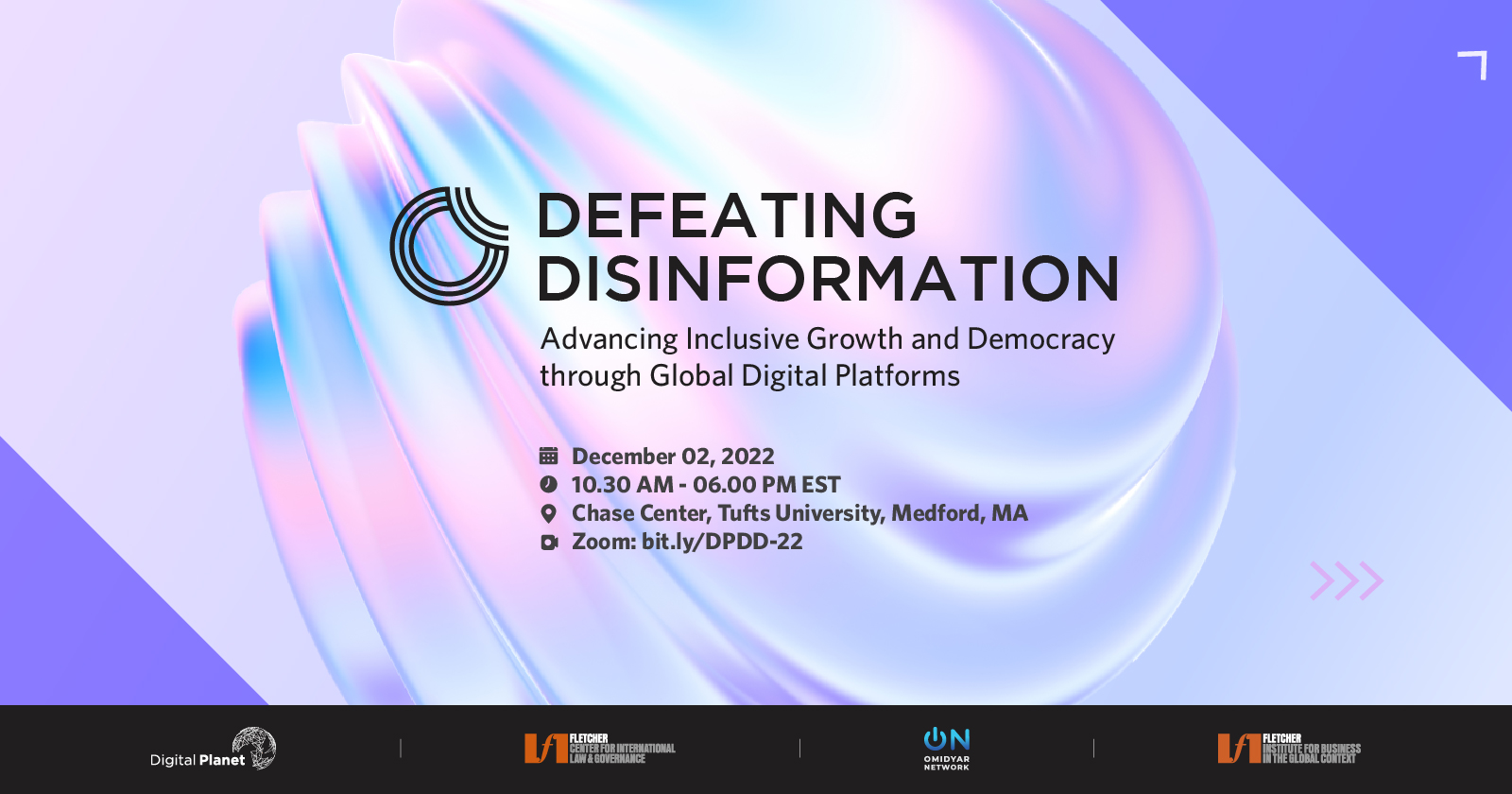
Experts explore and weigh in on critical challenges affecting the digital public sphere, design technical and regulatory solutions that address these issues, and answer questions including: Can a global approach be developed to address these tensions while maintaining or even enhancing the inclusive social contribution of platforms? Are the world’s most vulnerable populations given adequate protections, even as the platforms prioritize the most powerful governments? How can we ensure that these platforms work for everyone, everywhere, and what is the role that each sector can and should play to get us there?
There is no excerpt because this is a protected post.
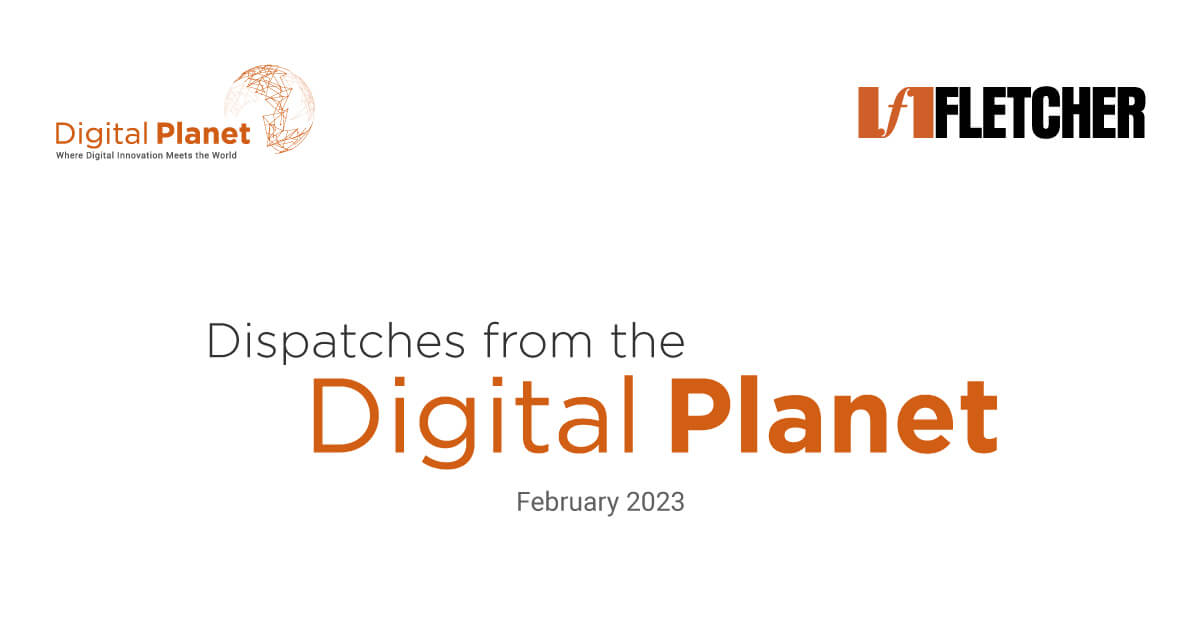
Dispatch from the Digital Planet is a monthly bulletin that talks about new updates in digital innovation across the world and their impact.

This year had a fascinating mix of goodies. Now seek AI talent from across the world, not just from a few mega-clusters.

Bridging the U.S. Digital Divide Fairly: An interactive Tool for Broadband Program Officers and Policymakers Who are Preparing to Expand High-Speed Internet Across America
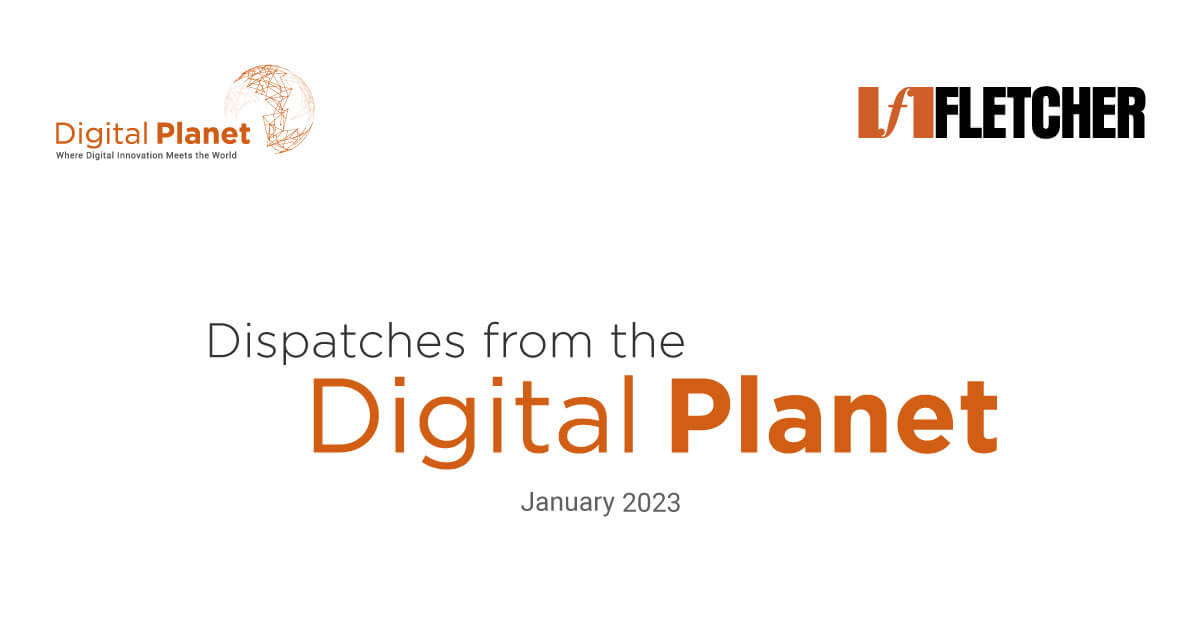
Dispatch from the Digital Planet is a monthly bulletin that talks about new updates in digital innovation across the world and their impact.

From the midterms to billionaire Elon Musk, 2022 yet again made clear why foreign policy begins at home.
A new report claims that more than a third of Twitter’s biggest advertisers have now pulled their ads from the platform | Techdirt
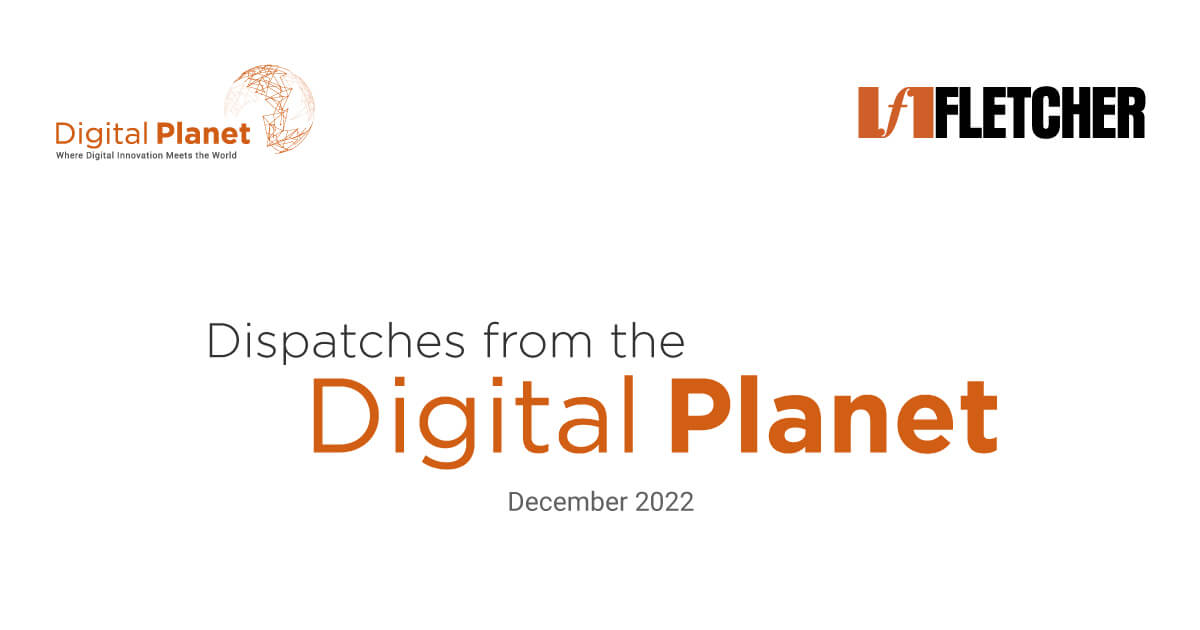
Dispatch from the Digital Planet is a monthly bulletin that talks about new updates in digital innovation across the world and their impact.

Since Musk has taken over, the most obvious sign of change at Twitter are the formerly banned users whose accounts have been reinstated. | The Times of India
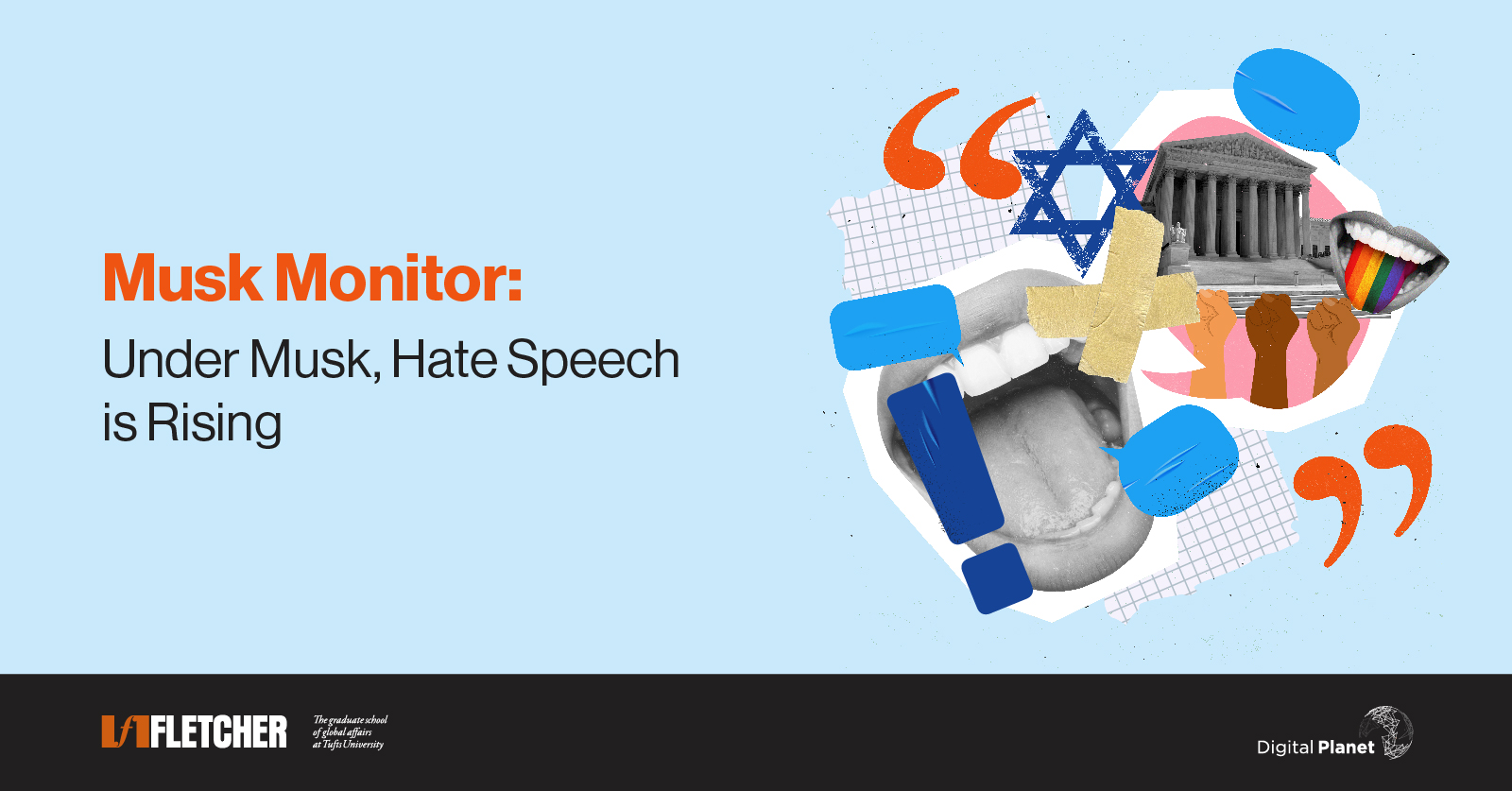
Post Elon Musk’s Twitter takeover, hate speech surged. We examined antisemitism, anti-LGBTQ+, racial hate. Analysis (Mar’22-Jan’23) revealed: hate speech volume increased, discourse quality worsened. Despite slight policy shift, toxicity persisted under Musk’s Twitter.

A Fletcher School expert explains how a central bank digital currency works and why the U.S. is considering developing one
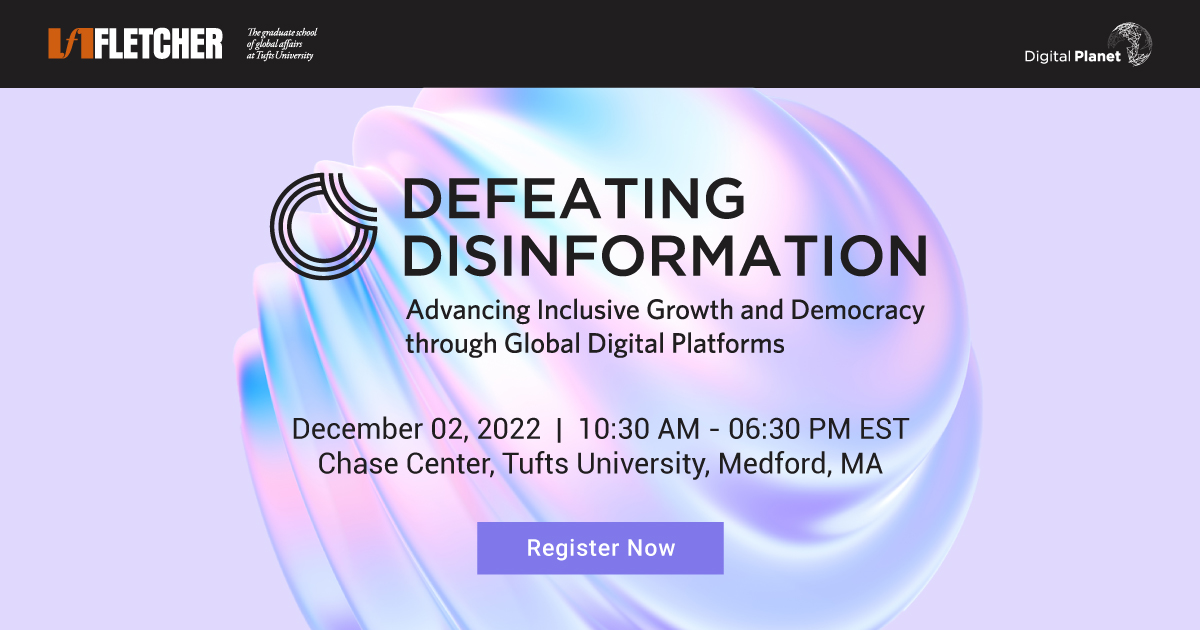
With hateful and harmful content ramping up around elections and conflicts
across the globe, disinformation is thriving. With the Defeating Disinformation
panel discussions, we examine the implications and impact online platforms
will have on the global community and what we can do to improve them and
ensure that user generated content contributes to civic discourse, informed
societies and inclusive growth.
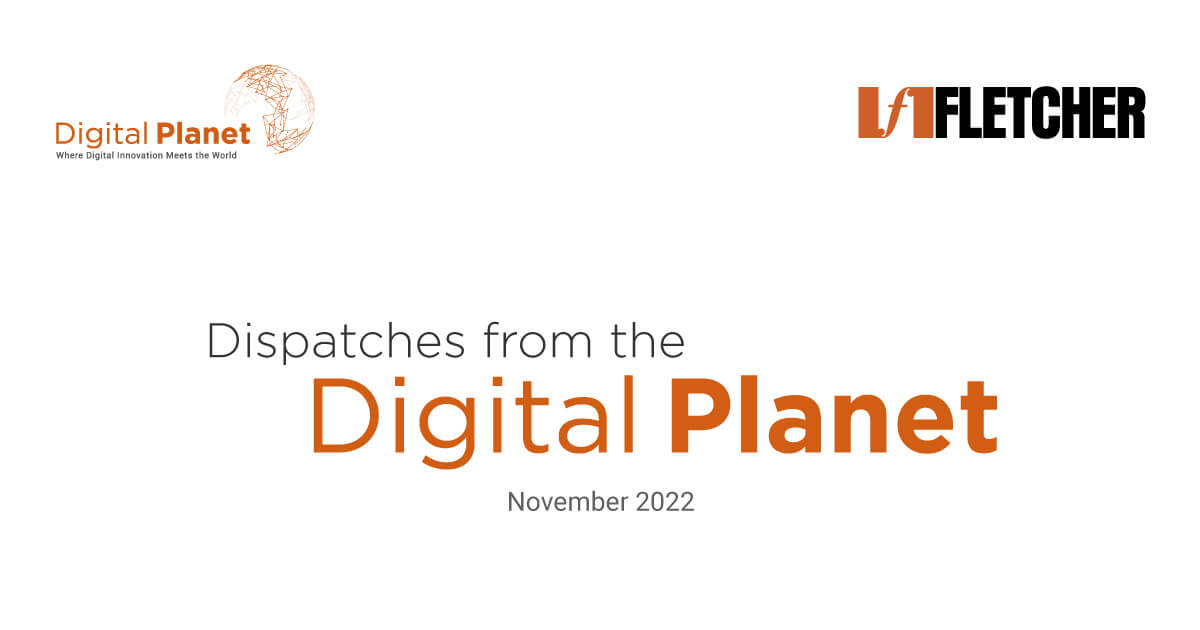
Dispatch from the Digital Planet is a monthly bulletin that talks about new updates in digital innovation across the world and their impact.
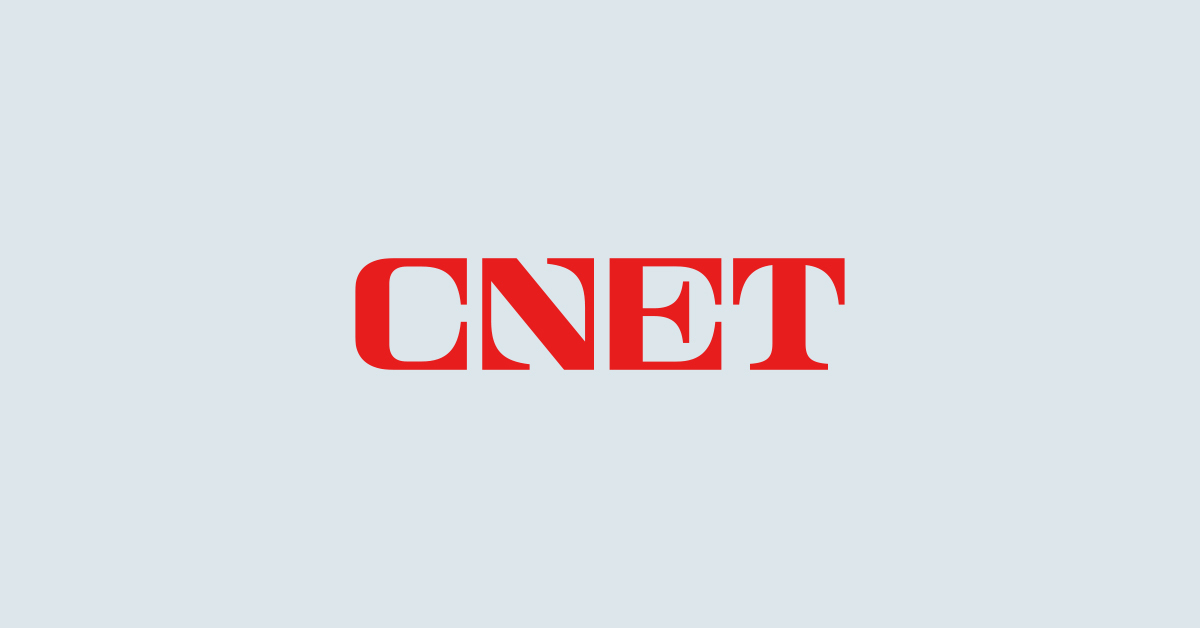
Discussions about the Trump-related, false conspiracy theory have ramped back up
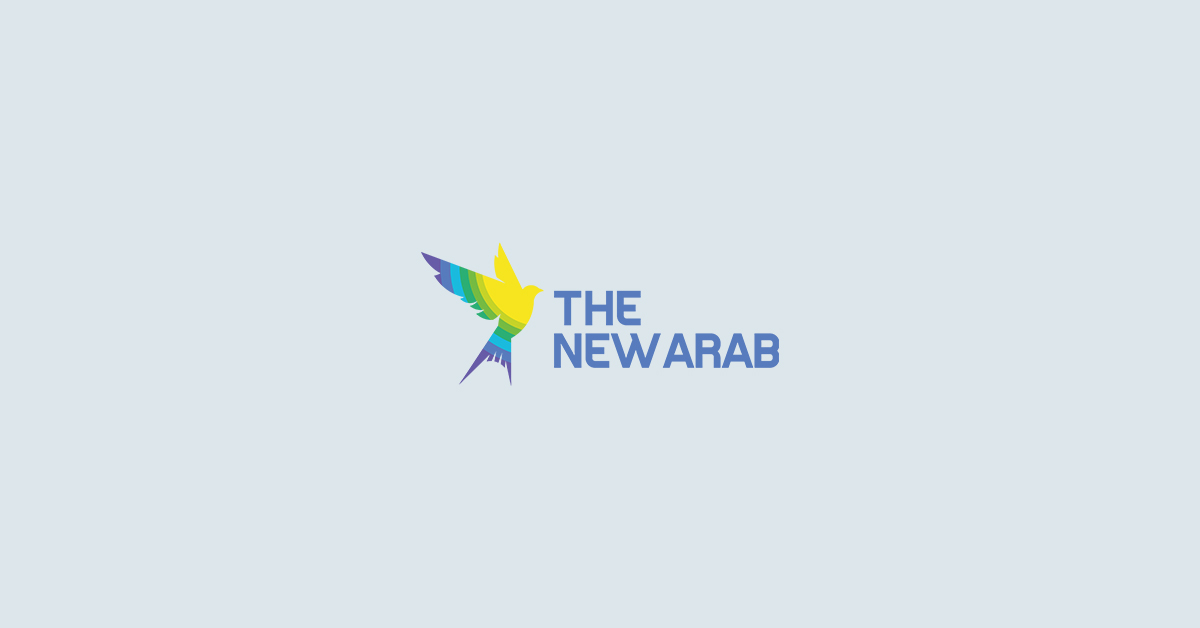
Twitter’s mass layoffs included staff responsible for tracking and countering misinformation spread on the platform ahead of and during the US midterm elections.

Researchers at Tufts expressed concern in a report about conspiracy theories on Twitter ahead of the midterms.

The collective silence will be the most viral tweet in the world.

Tufts report finds Twitter hate speech on the rise.

Conspiracy theories about mail ballots. Anonymous text messages warning voters to stay home. Fringe social media platforms where election misinformation spreads with impunity.

Voters in the U.S. who go on Twitter, TikTok, Facebook or other platforms to learn about Tuesday’s pivotal U.S. midterm elections are likely to encounter rumors, hearsay and misinformation.

President Biden recently warned American voters that democracy is on the midterm ballot. “In our bones, we know democracy is at risk,” Biden said in the speech.

One word that’s become part of our vocabulary when it comes to politics is ‘misinformation’ and in our recent political climate it seem.
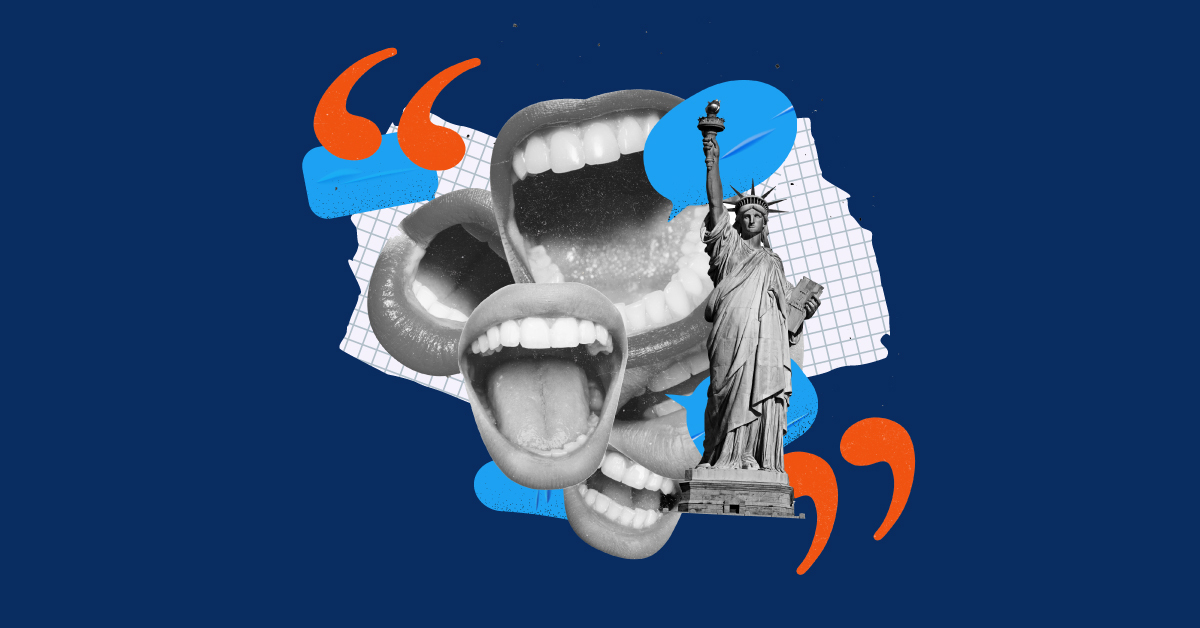
Ahead of the US midterms, Twitter analyzed trending toxic political themes. Pre-Musk, focus was countering misinformation and hate. Post-takeover, discourse quality declined, extremists emerged.

Conspiracy theories about mail ballots. Anonymous text messages warning voters to stay home. Fringe social media platforms where election misinformation spreads with impunity.
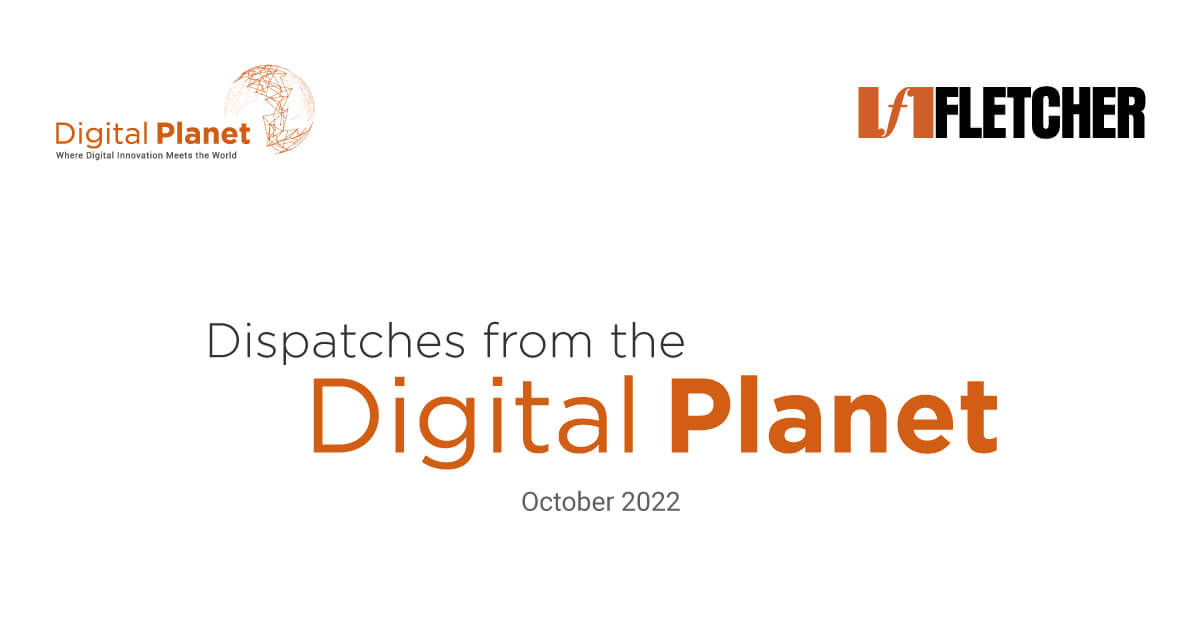
Dispatch from the Digital Planet is a monthly bulletin that talks about new updates in digital innovation across the world and their impact.

Tufts University researchers told the Federal Communications Commission on Tuesday to focus on how many individuals, not just locations, are receiving high-speed service as the agency creates new broadband maps to inform the distribution of federal infrastructure funds by the U.S. Department of Commerce.

Covid has accelerated digitisation for women, a new study reveals.
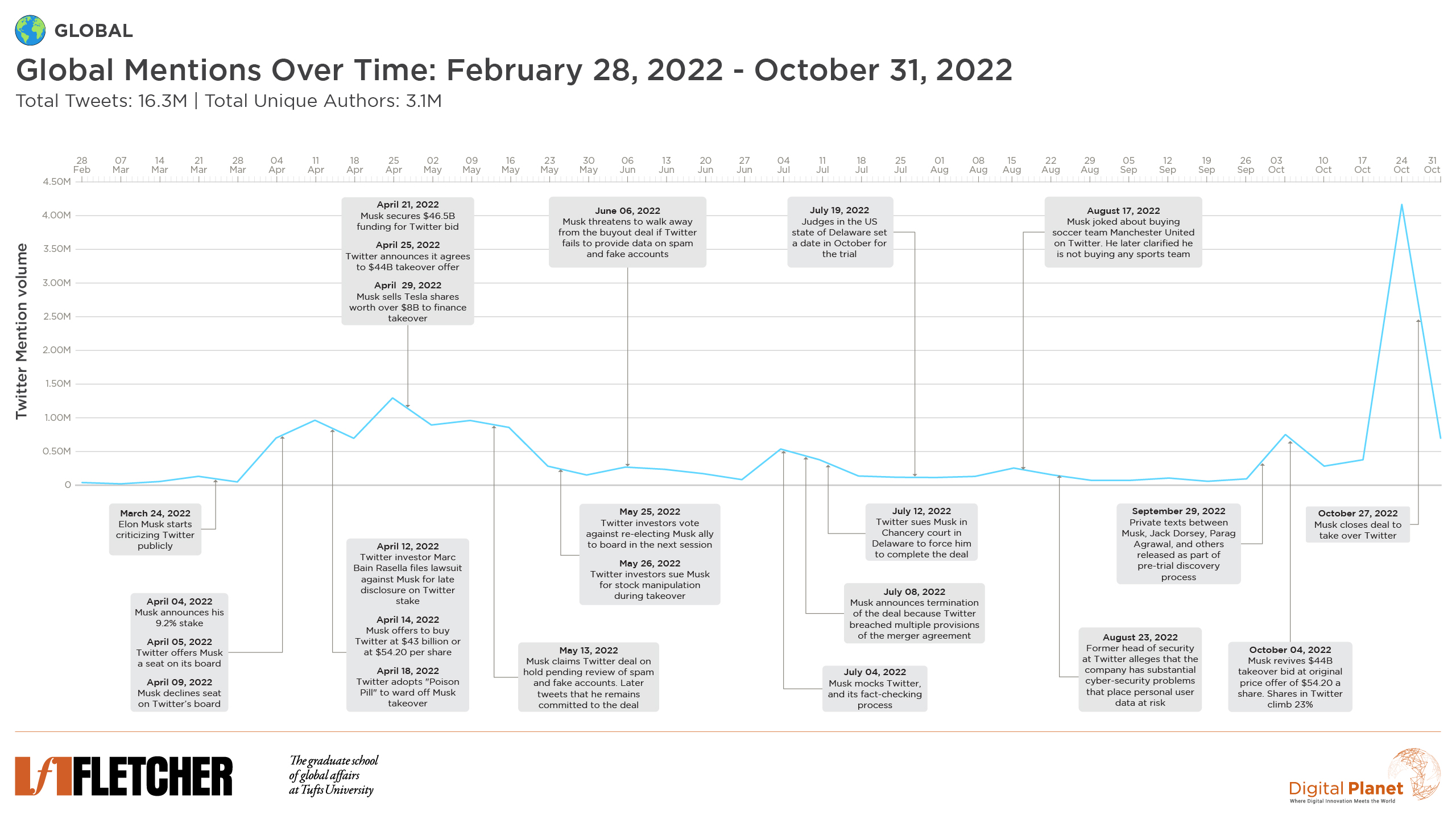
Examining 16.3M tweets (Feb-Oct ’22) from 5 nations on Elon Musk’s Twitter takeover, reactions shifted: positive to criticism, negativity to buyout plan, sadness on his control. Across countries, emotions followed Musk’s moves on Twitter.

Tucker Carlson, Donald Trump Jr. and Republican lawmakers are seeing their follower counts spike, while Democrats’ are on the decline.

Michael chats with Ravi Shankar Chaturvedi all about the carbon footprint of cash.

The news in this months-long saga came the very week he was expected to be deposed in in a lawsuit Twitter filed against Musk for breach of contract. The exact reasons for his 180 are unknown, but experts told Vox that it shows the Delaware Court of Chancery’s muscle in potentially reining in the richest person in the world’s disregard for convention in his business dealings.
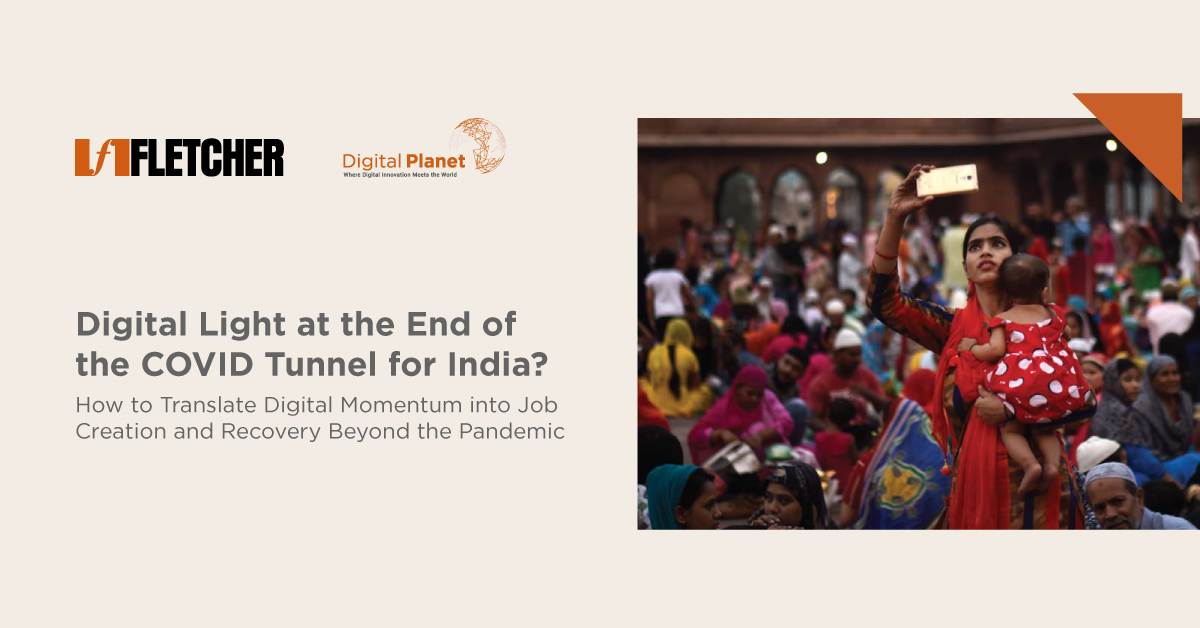
Explore COVID-19’s effects on India’s digital economy, from lockdown challenges to the inclusion paradox. Discover strategies to bridge the gap and unleash India’s digital potential.
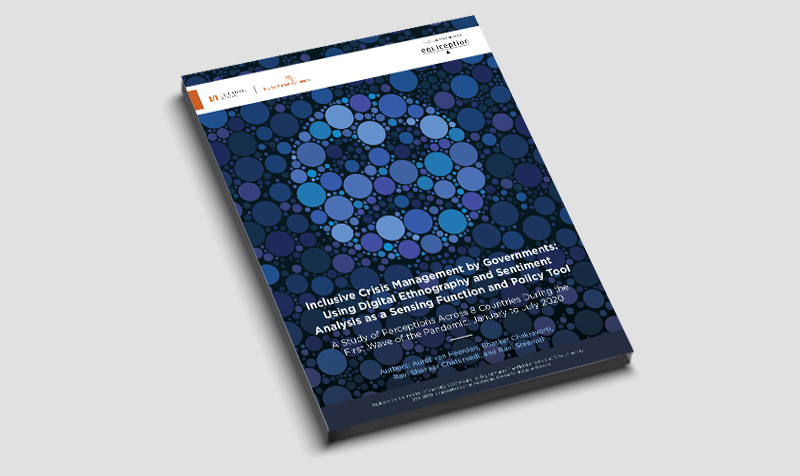
How can real-time social analytics provide a tool for inclusive policymaking? This report uses a dataset of over 873 million online interactions drawn from more than one hundred social and mainstream media channels to analyze public sentiment and emotion in response to the pandemic management of eight governments between January and July 2020.
In collaboration with Equiception
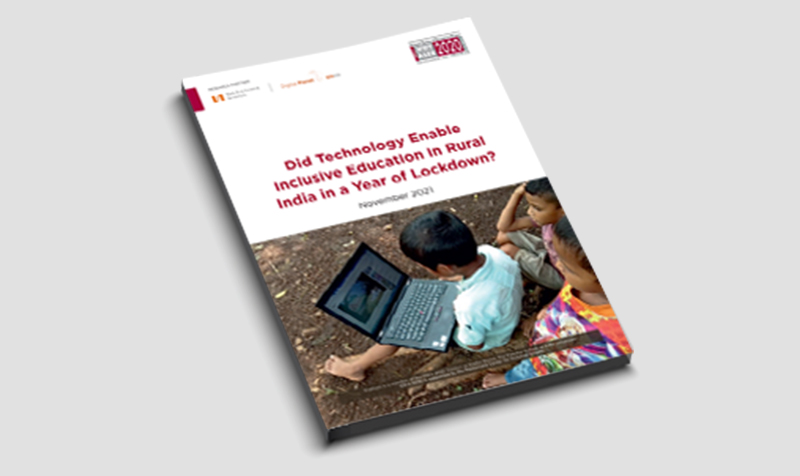
Recent global estimates suggest that school closures and unequal access to technology-based educational inputs used for remote learning will aggravate the existing equity gaps in education. ASER Digital Check 2020 captures information on various dimensions such as children’s sex, their school type, and their parents’ education level to explore this widening equity gap in education in rural India.
In collaboration with ASER Centre, Pratham India
There is no excerpt because this is a protected post.
There is no excerpt because this is a protected post.

The under-representation of women in high-paying STEM roles is a vexing issue that exposes a systemic inertia across the industry.

The under-representation of women in high-paying STEM roles is a vexing issue that exposes a systemic inertia across the industry.

Discover Ukraine’s Resilient Tech Economy Amidst Conflict. President Zelensky prioritizes economic preservation in the face of war, removing obstacles for SMEs. Tech sector fuels growth, accounting for $2B in Q1 2022. Learn how digital infrastructure, contingency plans, tax breaks, and security training contribute to its success. Follow our series ‘Imagining a Digital Economy for All in Ukraine’ to explore insights from industry leaders navigating the challenges. Adaptability, collaboration, and innovation redefine the future of work in a dynamic landscape.
There is no excerpt because this is a protected post.

Senate majority leader still seeking to get self-preferencing bill to the floor as data-privacy bill remains stalled, but Lina Khan’s FTC is making moves even without new laws.

The Federal Trade Commission initiated a proceeding to examine whether we should implement new rules addressing data practices that are unfair or deceptive.
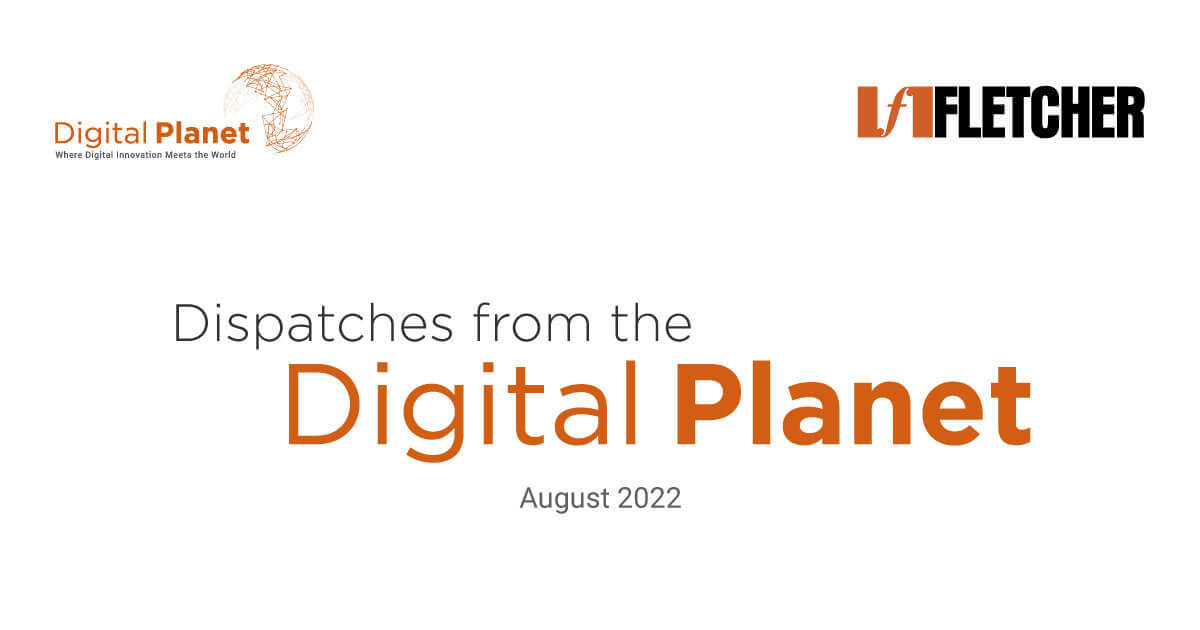
Dispatch from the Digital Planet is a monthly bulletin that talks about new updates in digital innovation across the world and their impact.

Two years ago, COVID triggered a surge in remote work. But now that most restrictions have been lifted, is it here to stay? Not in these countries.

Not having high-speed internet could be risky for your health as Tufts University research shows people living in counties with broadband access are less likely to die from COVID-19.

Companies have recently made progress in employee diversity, but cuts due to economic worries are expected to hurt underrepresented workers most.

More services are going online-only—catching more people on the wrong side of a widening gulf.
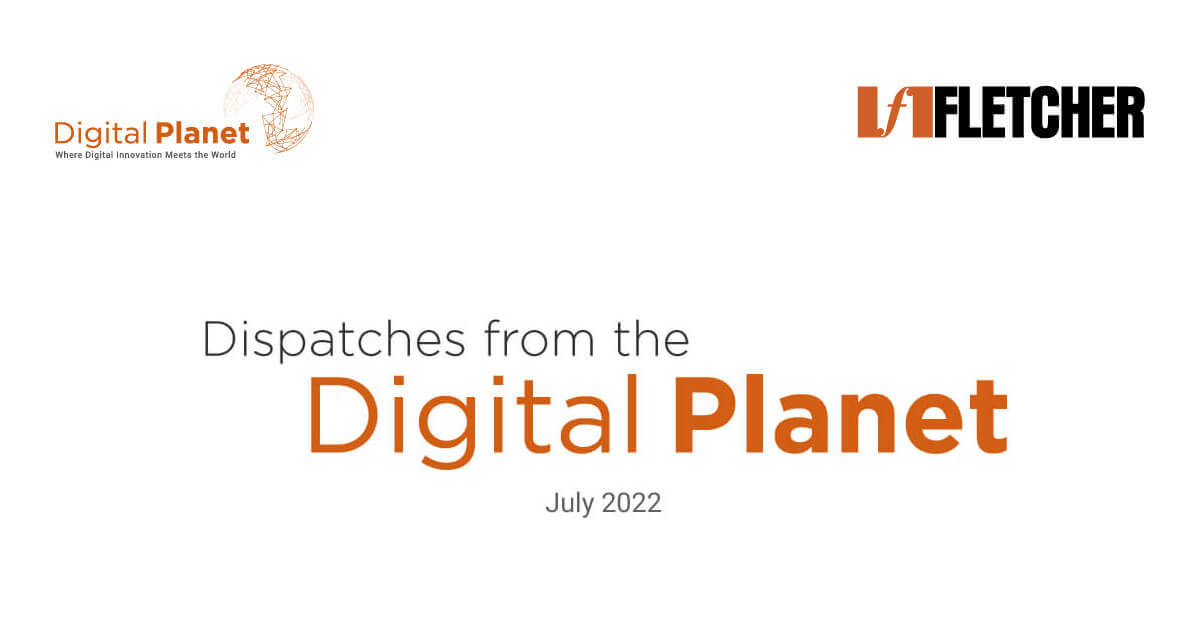
Dispatch from the Digital Planet is a monthly bulletin that talks about new updates in digital innovation across the world and their impact.
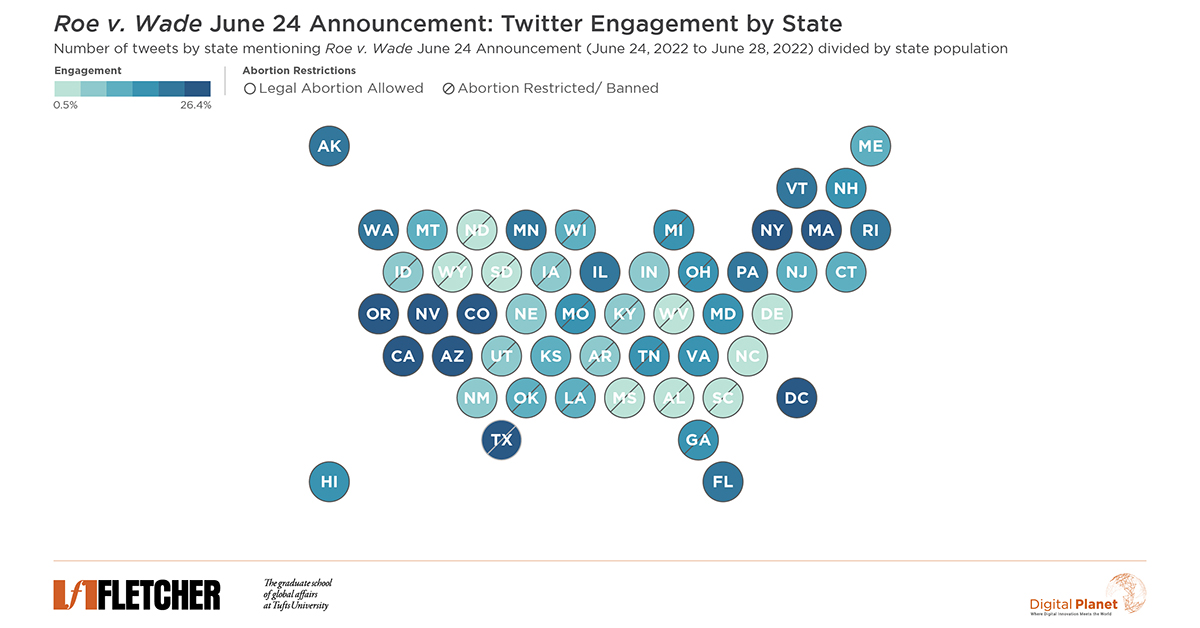
How did Twitter react to the Roe v. Wade announcement from the Supreme Court? What does this mean for abortion rights in America?
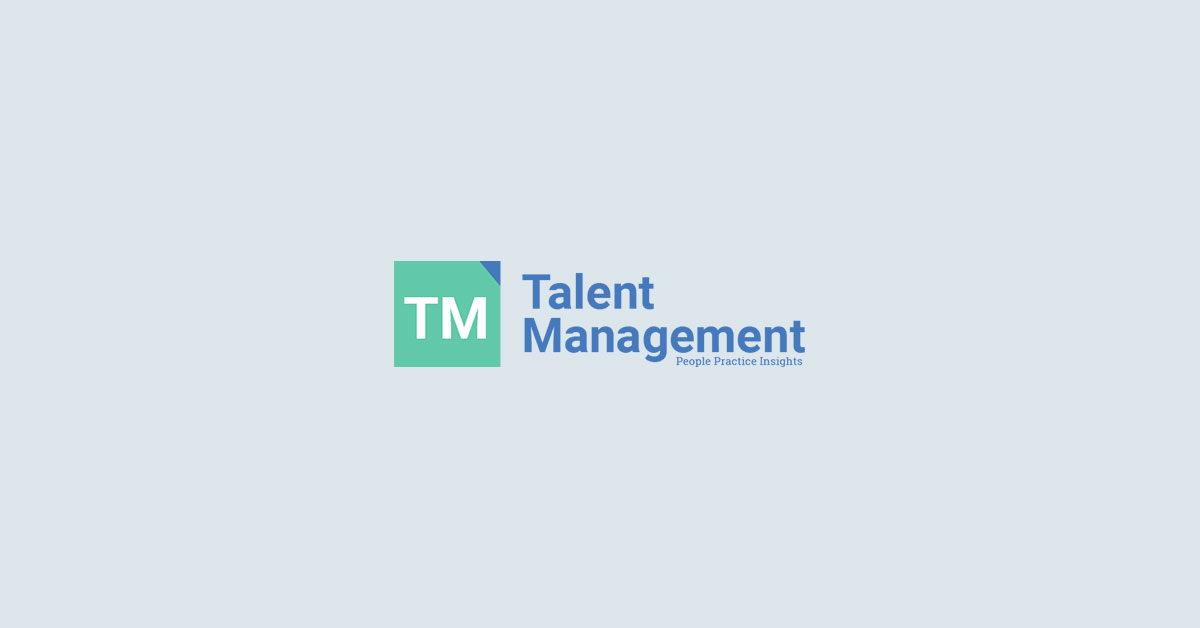
Courageous organizations can choose a path different from the historical journey often taken by the competition.

As Covid-19 raged, access to high-speed internet saved lives. The effects were especially pronounced in cities, researchers found.
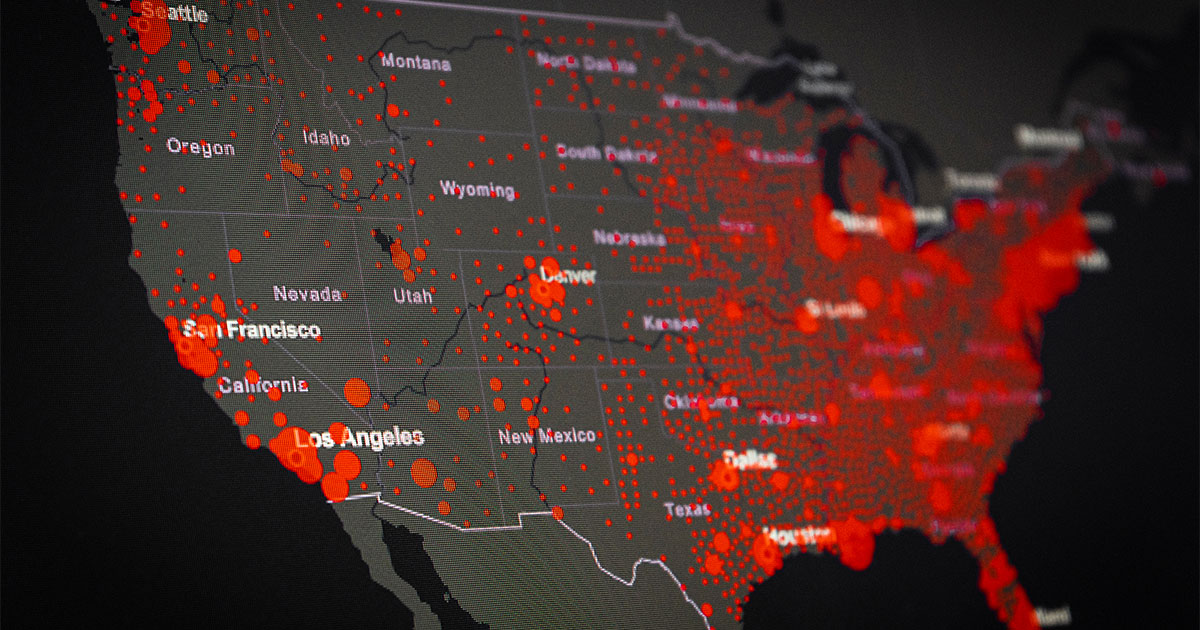
US broadband expansion lowered Covid mortality, especially in metro areas. Internet access is crucial in the public health toolbox.
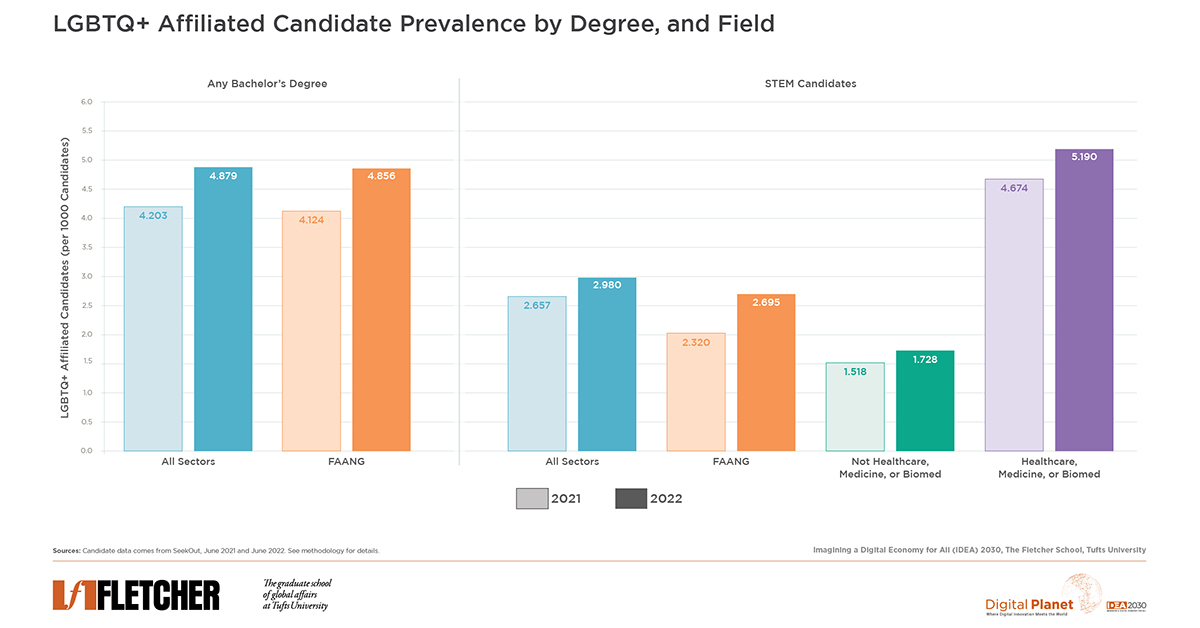
For Pride Month 2022, Digital Planet updates LGBTQ+ representation analysis in STEM. Affiliation disparities persist, with women in STEM and FAANG facing challenges. Younger STEM candidates lag behind college graduates in LGBTQ+ affiliation.
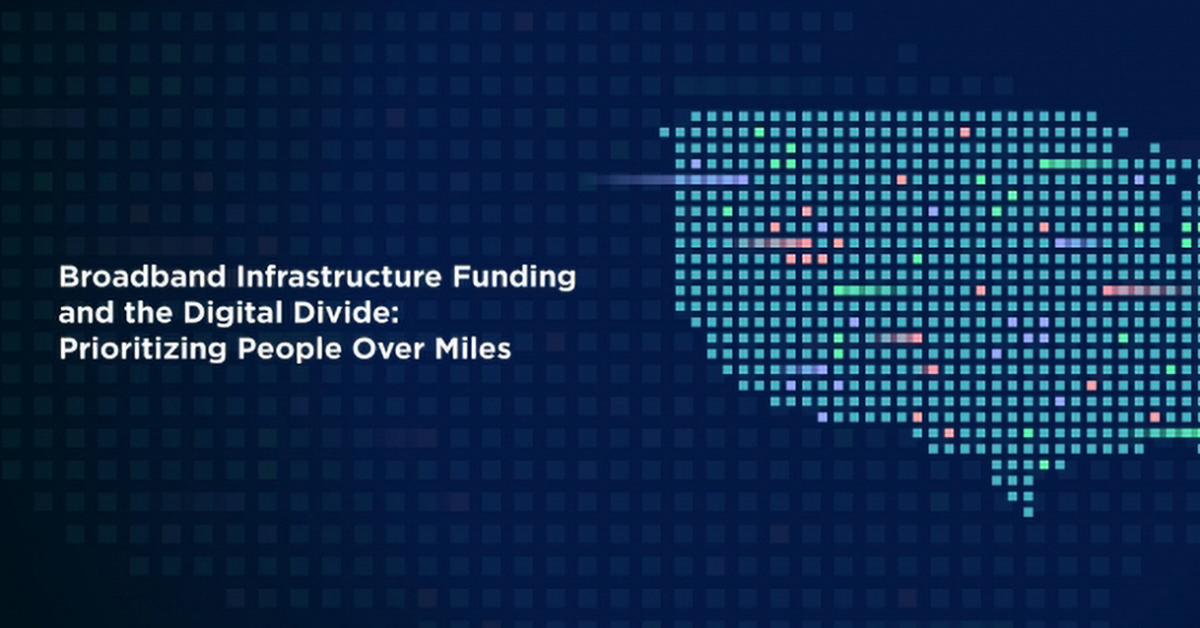
The Infrastructure Investment and Jobs Act allocates $65B to expand US broadband. We advocate a “people over miles” approach for equitable access.

Some of the biggest U.S. companies have agreed to third-party racial-equity audits after shareholder pressure that increased amid the Black Lives Matter movement.
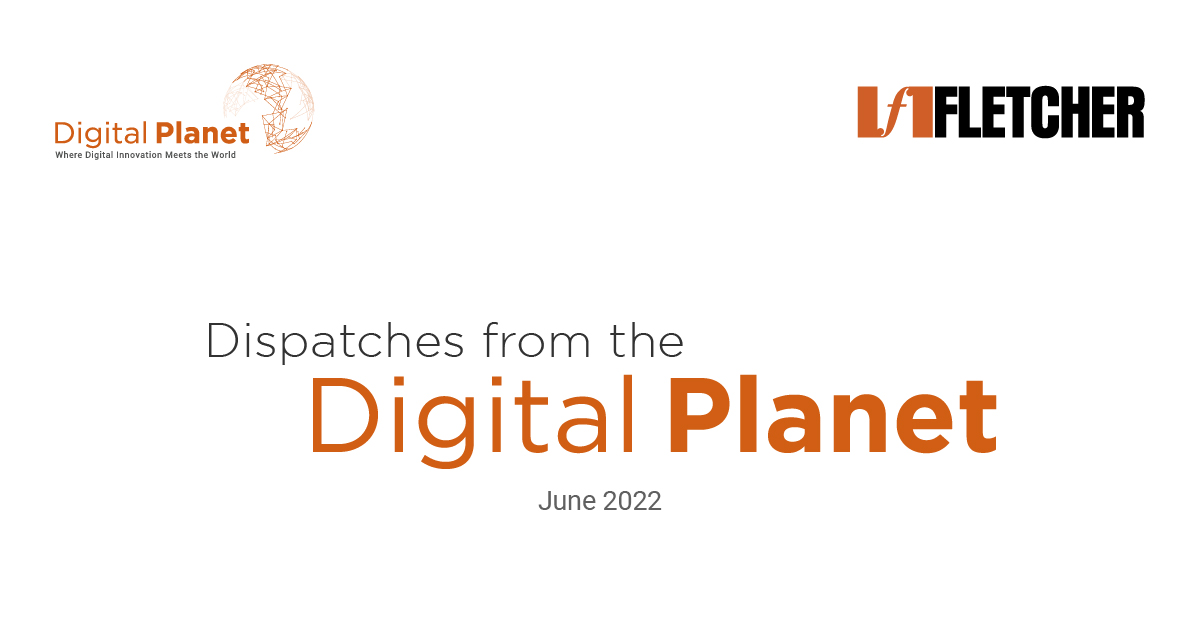
Dispatch from the Digital Planet is a monthly bulletin that talks about new updates in digital innovation across the world and their impact.
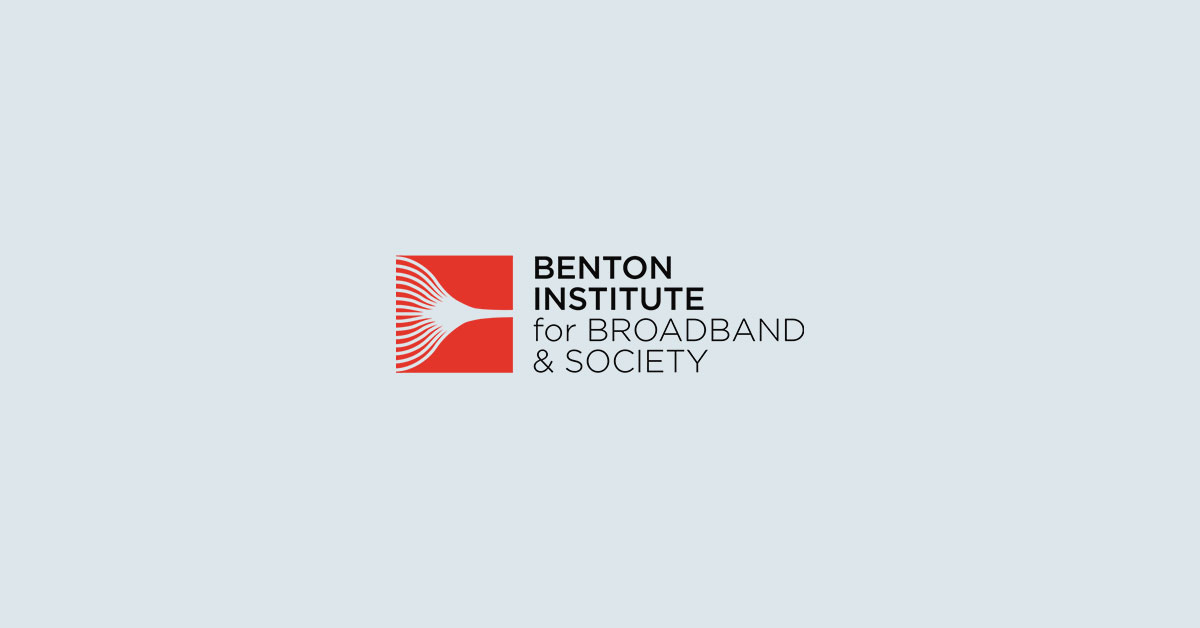
We’ve been talking for years about how to fix the rural broadband problem. Now we’re finally going to do it.

Our ambition isn’t just to increase our pool of tech talent. It’s to diversify the sector one hire at a time, writes the chief of Chicago’s Discovery Partners Institute.

Friday marks 100 days since Russian President Vladimir Putin ordered a full-scale invasion of Ukraine.

Migrants are optimistic, technologically savvy and motivated to build a better life.
Digital Pulse is a platform for measuring and understanding the public’s evolving emotional responses to breaking events. Conceived by Digital Planet as part of the IDEA2030 initiative, Digital Pulse harnesses unstructured data to gauge the reactions of various online communities across the globe to key events. Data gathering and analysis were conducted by Ripple Research, an IDEA 2030 affiliate, under the direction and guidance of the Digital Planet team.

With midterm elections looming, Congress probably has until summer to pass legislation.
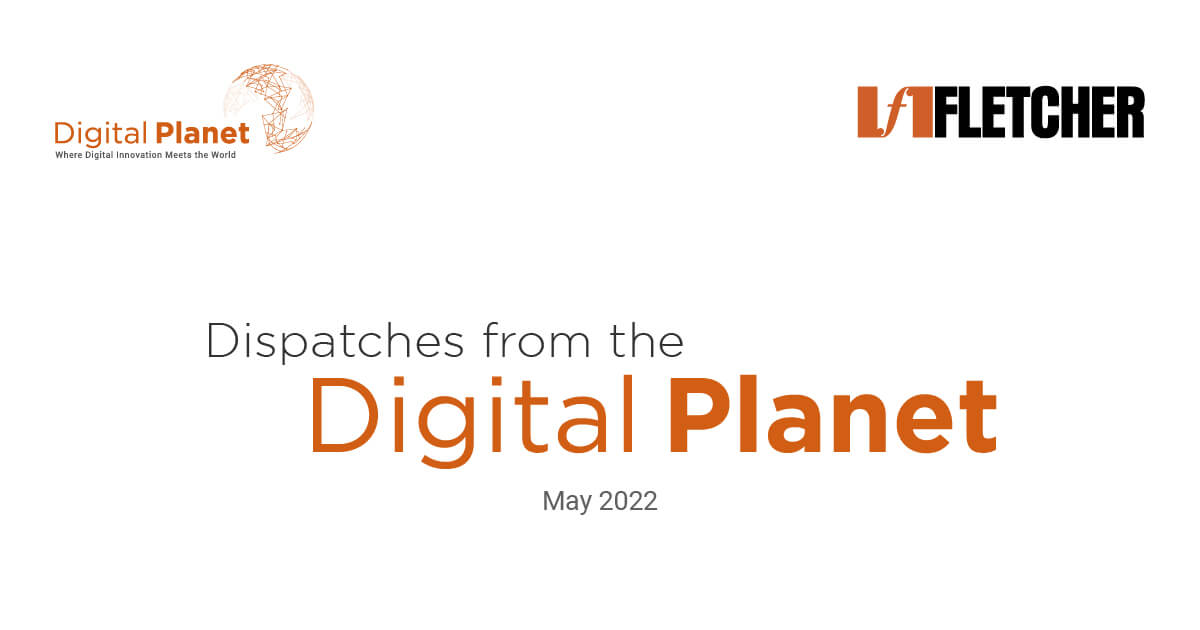
Dispatch from the Digital Planet is a monthly bulletin that talks about new updates in digital innovation across the world and their impact.

While the Twitter community backed Musk’s tweets criticizing the platform, those feelings quickly turned sour at the idea of the billionaire buying Twitter.

Musk would likely decimate Twitter’s brand and reputation, say current and former employees.
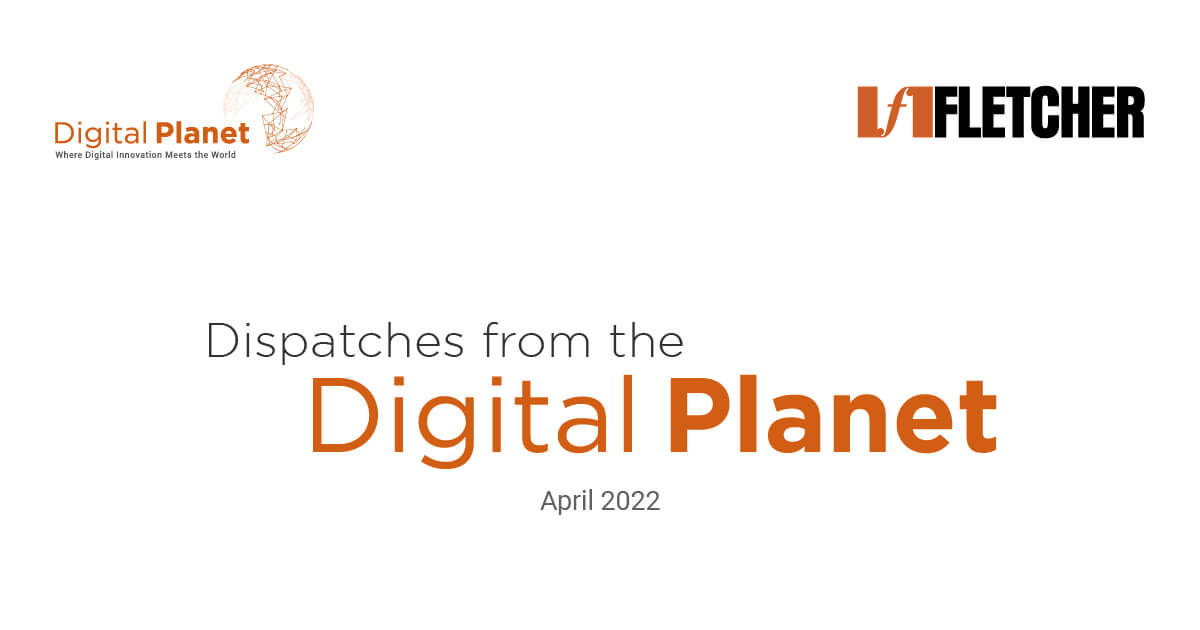
Dispatch from the Digital Planet is a monthly bulletin that talks about new updates in digital innovation across the world and their impact.

The lingering pandemic and the ongoing war in Europe has made the world economy experience a slowdown in the pace of globalisation. This has ramifications for both the global and Indian economy.
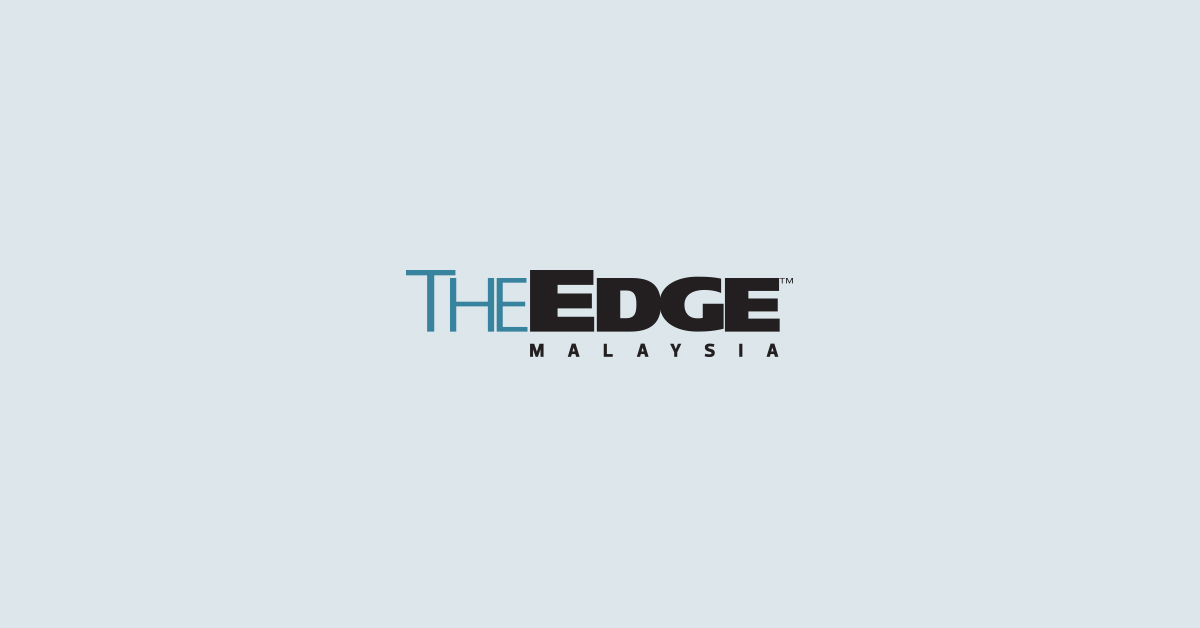
Cyber threats could outpace traditional approaches to data security: MyDIGITAL CEO

We present Progress to Digital Parity—an interactive scorecard that tracks the journey towards realizing the goal of a digital economy for everyone, everywhere.

How old boys’ clubs and box-checking keep tech, academia and more from real progress.

The needs of the global sustainable development agenda are both broad and urgent, and innovation models are central to addressing them in a timely, efficient, and scalable manner, from promoting inclusive growth and ensuring the longevity of natural resources to addressing issues across the state of the human condition.

How to work at the cloud-services firm Box, a top-rated employer that recruits people who ‘imagine that they can’t get a job at a tech company’.

Employees of SE Ranking, the Silicon Valley company whose chief accountant is the first known tech worker to be killed in Russia’s invasion of Ukraine, want Tatiana Perebeinis to be remembered for more than the way in which she died, a co-worker told MarketWatch on Wednesday.
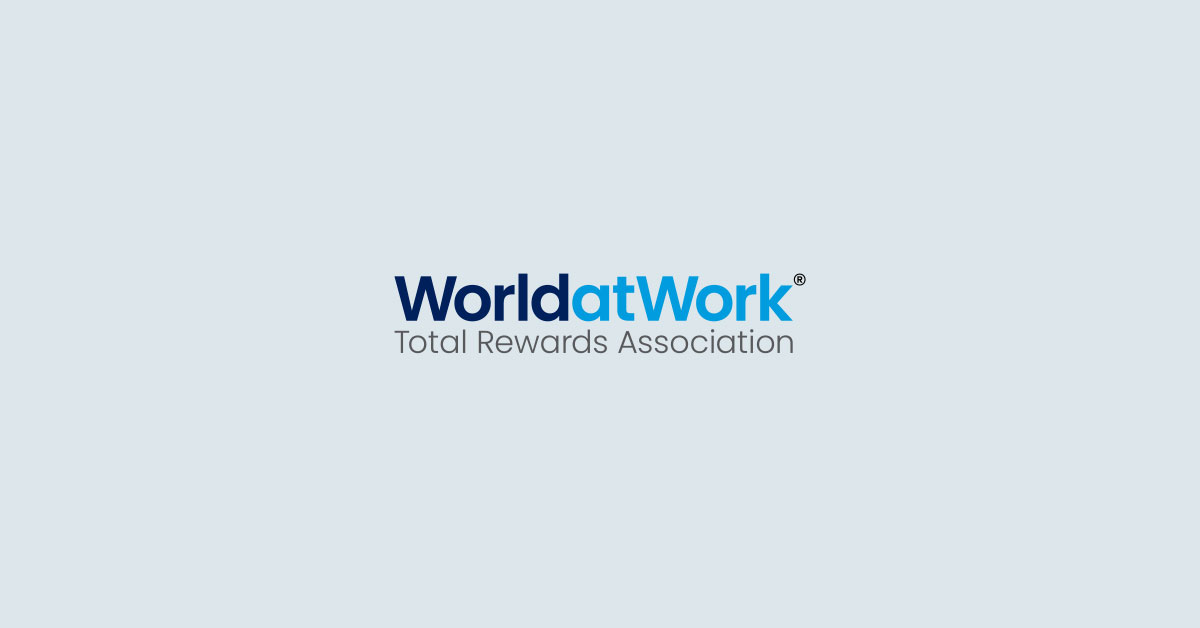
As Russia continues its brutal military campaign in Ukraine, which it launched two weeks ago, several financial themes have emerged. One is the growing list of U.S. companies cutting off ties with Russia, with McDonald’s, Starbucks and Coke being the latest to join the list of nearly 300 companies.

After Big Tech steps in to cut off Russia in wake of Ukraine invasion, experts say it was an easy call because Russia spends so little on a global scale, but could trap Apple and others when and if a larger customer like China makes a similar move.

Worsening Sino-US ties, strict Covid rules and the crackdown on dissent have dented the territory’s fabled allure as a business hub, say experts.
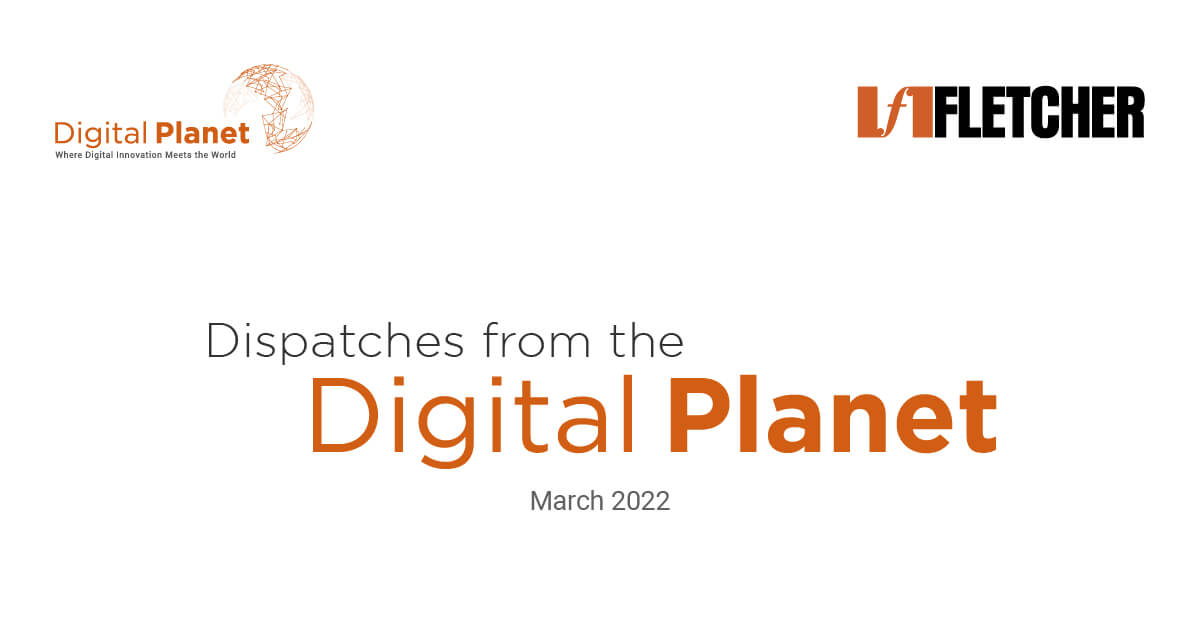
Dispatch from the Digital Planet is a monthly bulletin that talks about new updates in digital innovation across the world and their impact.

India’s equity market is booming, but what impact does this have on the digital market?

Internet giants grapple with how to handle the Taliban’s activities on their platforms.

As rumors began to spread of power outages, cyberattacks and tanks rolling into eastern Ukraine, JustAnswer Chief Executive Andy Kurtzig convened his employees in the invaded country on a video conference call to put emergency plans in place.

Semiconductor blockades are powerful sanctions—but may not prove effective with Russia.
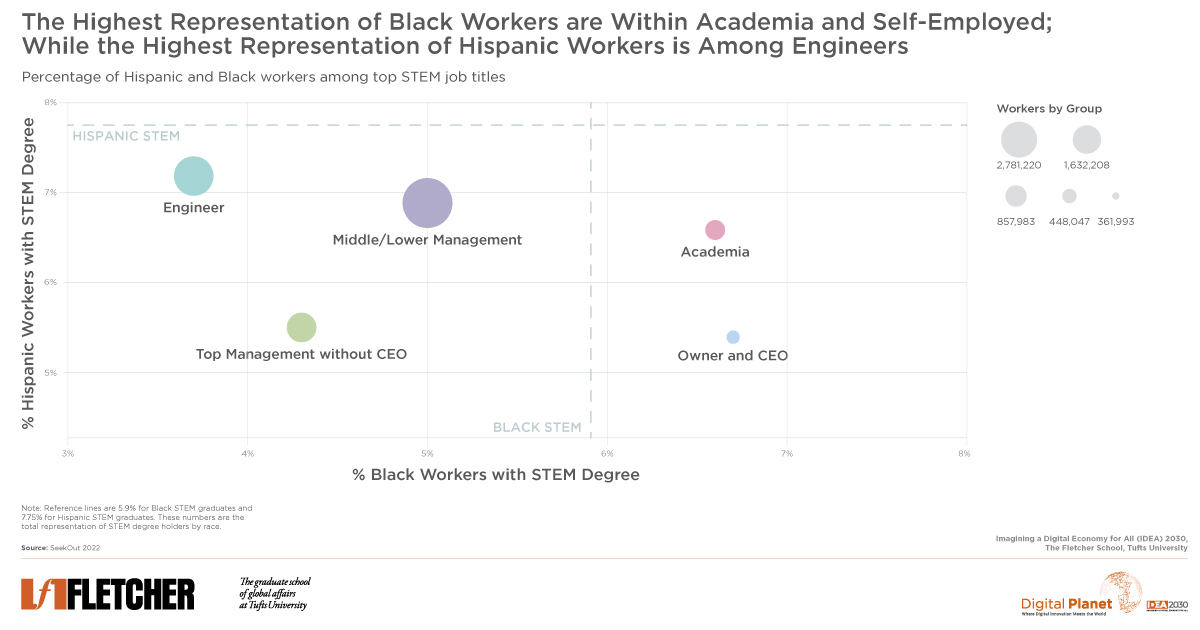
Despite strides in college attainment, Black Americans encounter obstacles in pursuing lucrative careers, especially in high-paying STEM roles within the technology sector.
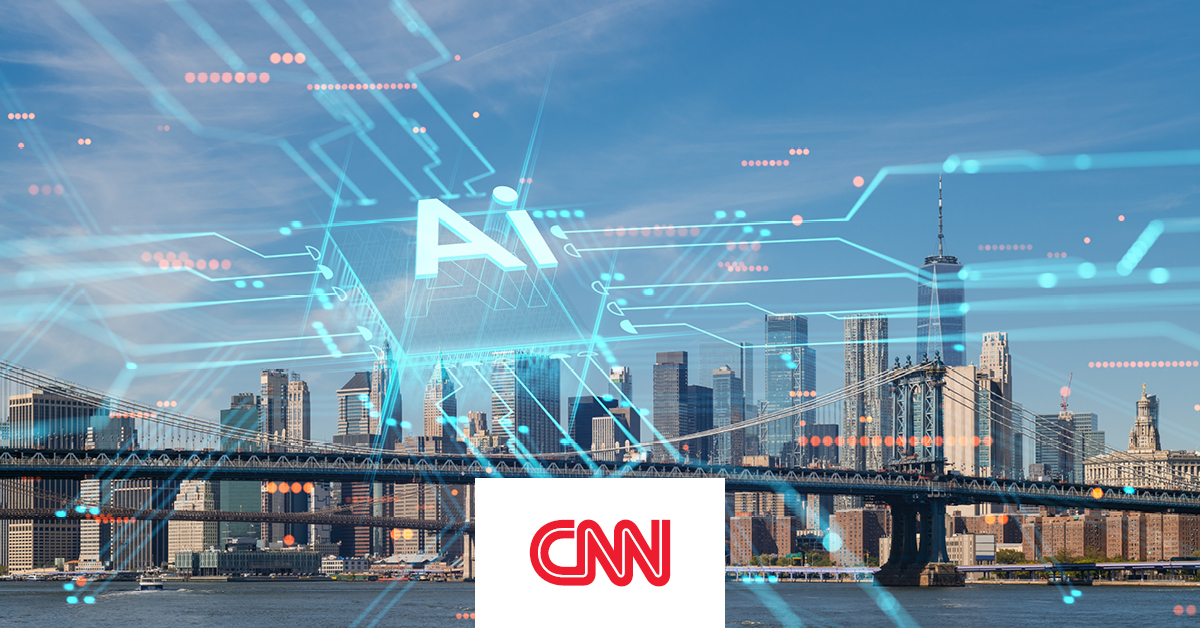
Ajay Bhalla and Bhaskar Chakravorti analyze 50 cities to determine where to be for all things artificial intelligence.

After years of taking a wait-and-see attitude toward cloud services, financial services companies are ready. Data from Capco and Wipro found that 62% expect cloud computing investments to improve revenue and 52% believe those investments will improve profitability.

India has announced a digital budget with plans to create its own cryptocurrency – the digital rupee.
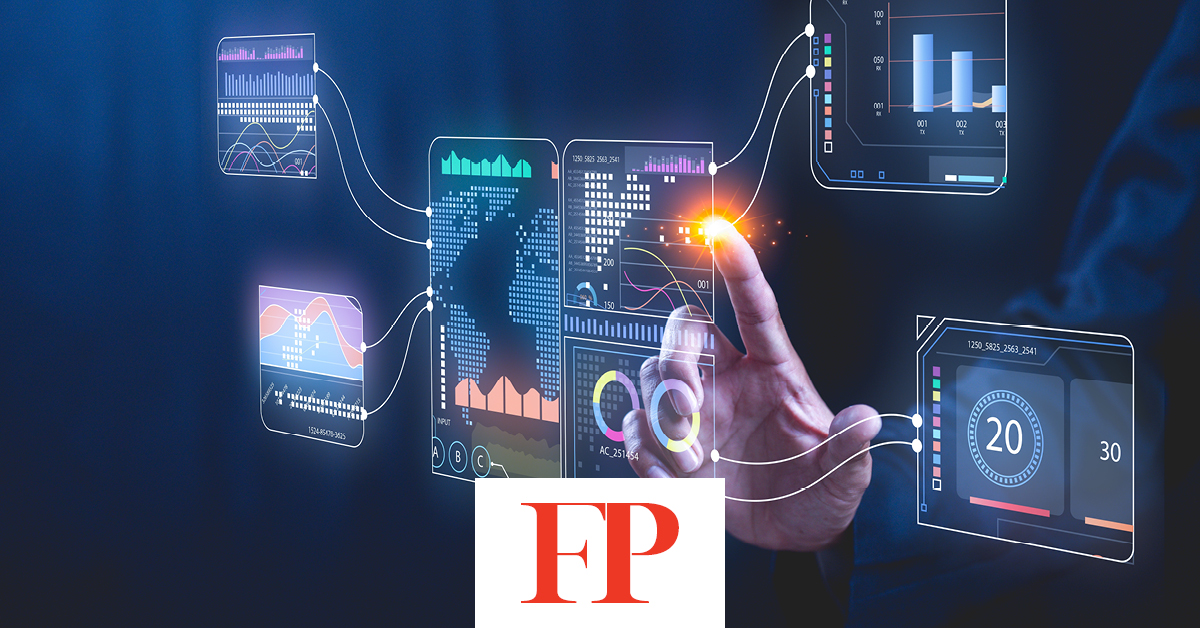
Fringe players take on Big Tech, governments start regulating, and AI could finally prove its worth.
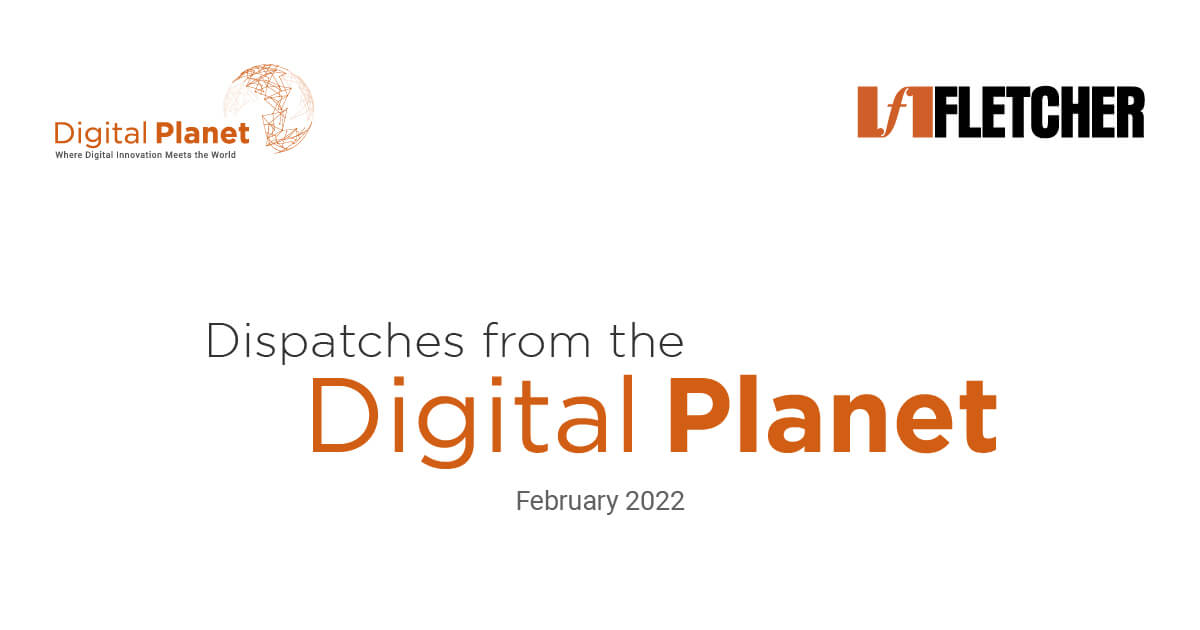
Dispatch from the Digital Planet is a monthly bulletin that talks about new updates in digital innovation across the world and their impact.
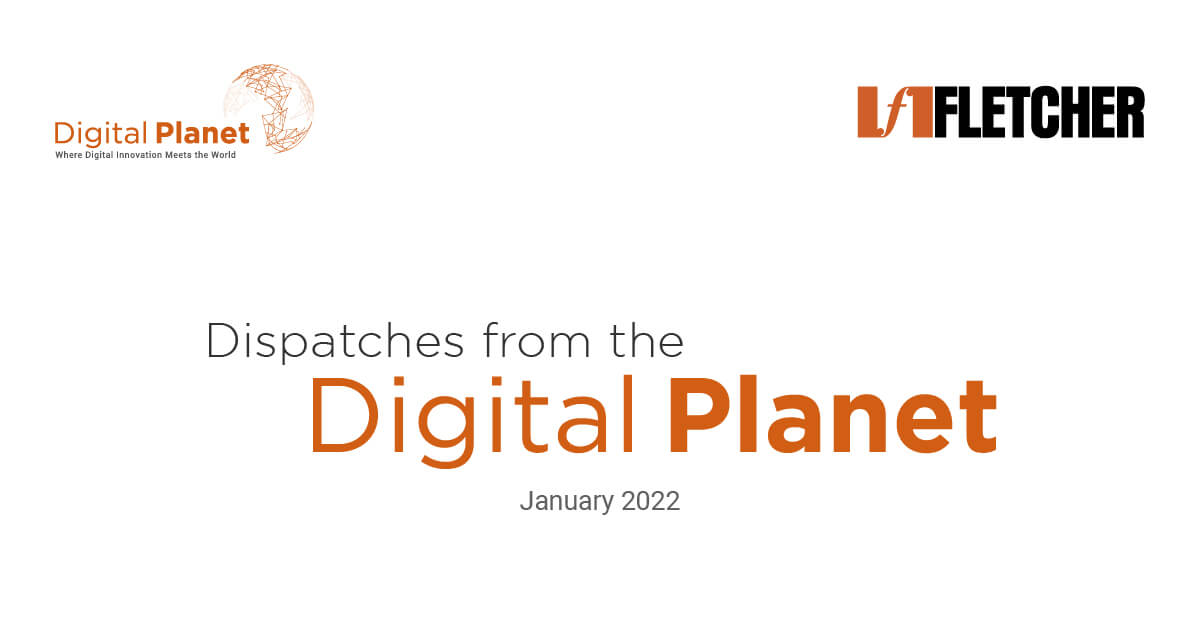
Dispatch from the Digital Planet is a monthly bulletin that talks about new updates in digital innovation across the world and their impact.

Commerce Secretary Gina Raimondo aims for universal broadband by 2030, but distributing funds from the infrastructure law may take years.
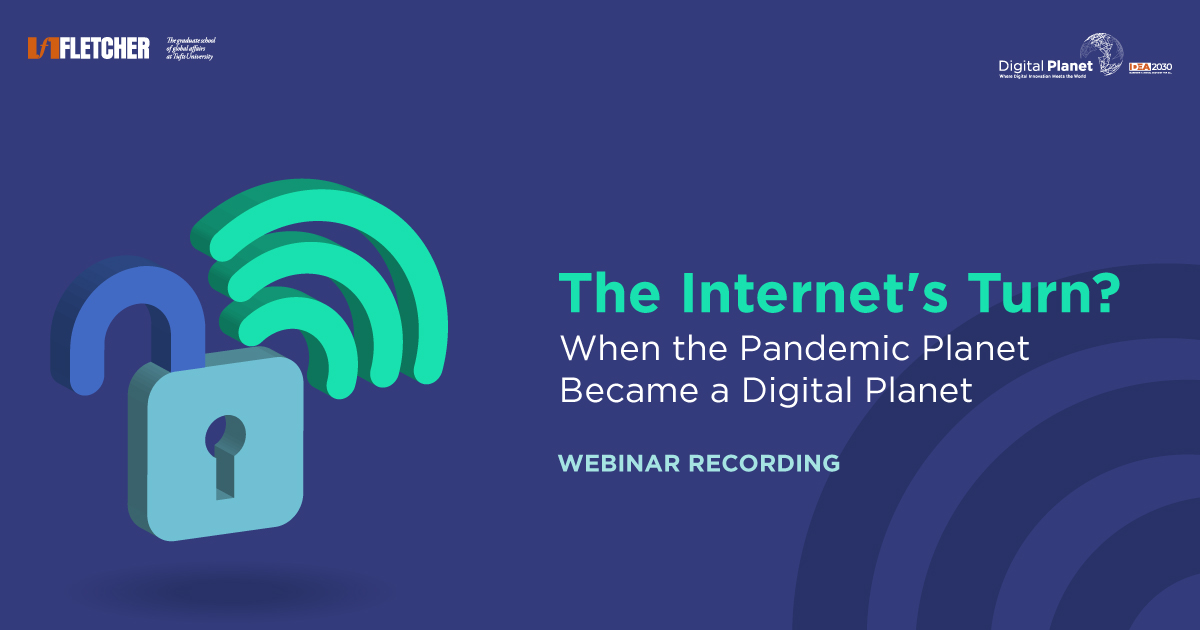
A network of researchers and doers, comprising academics, social entrepreneurs, AI analysts and global consultants, met and discussed the lessons learned from our digital lives around the world during the pandemic. Get a better picture of how we can get from there to a post-pandemic digital economy that works for everyone everywhere.
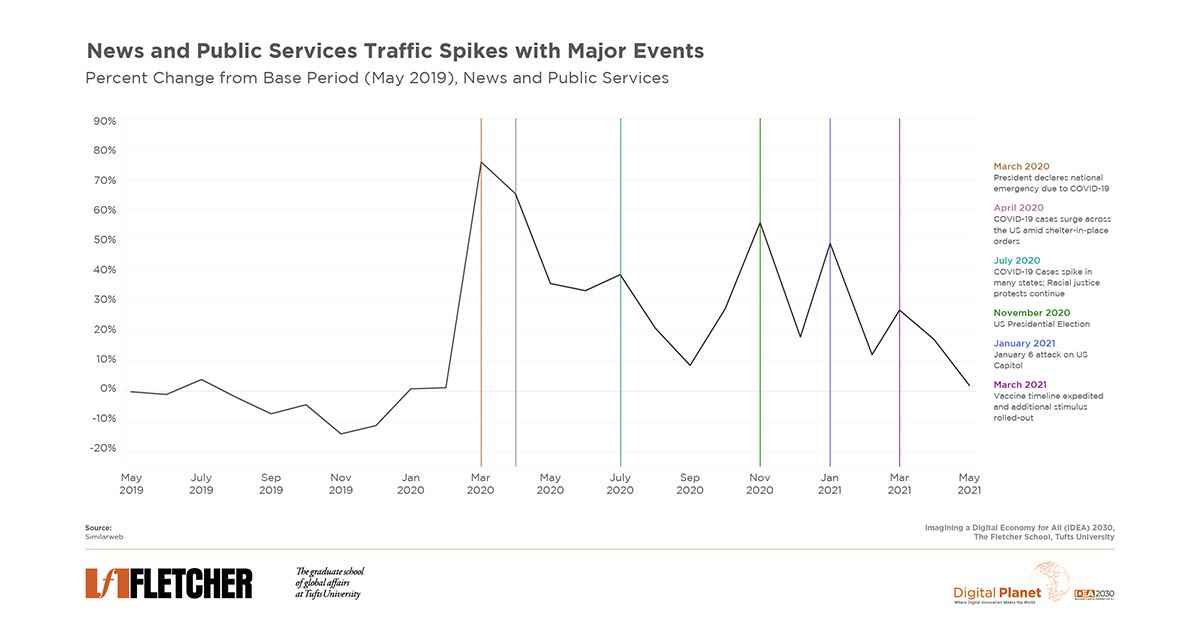
During the online shift, global digital adoption surged, advancing us digitally by 5 years in just 8 weeks.
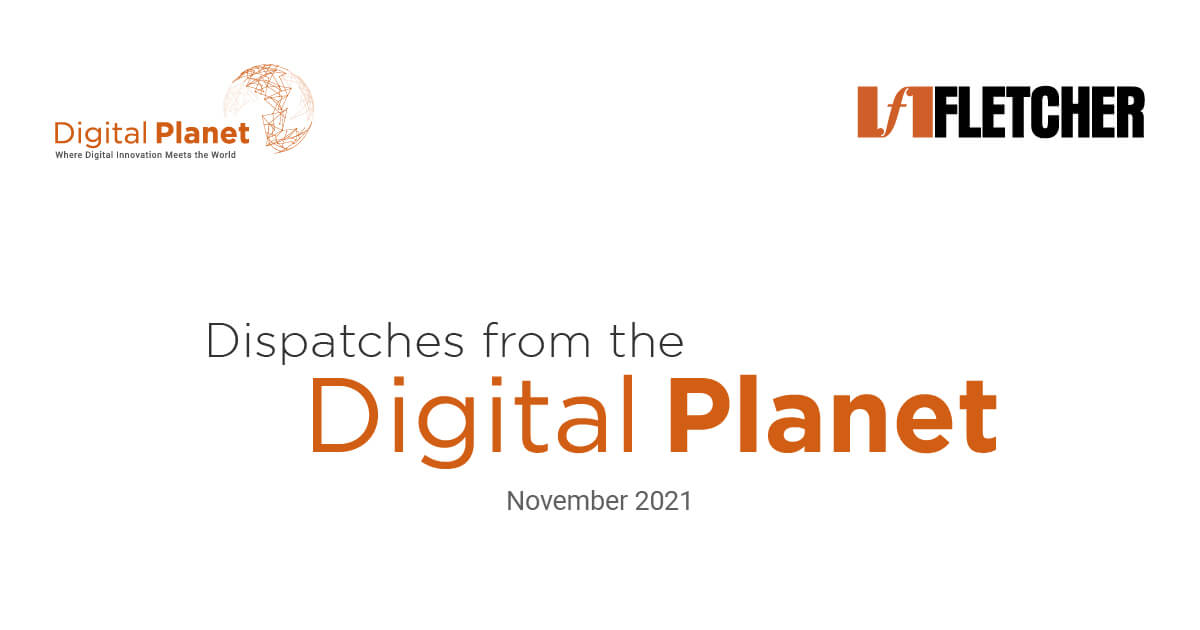
Dispatch from the Digital Planet is a monthly bulletin that talks about new updates in digital innovation across the world and their impact.
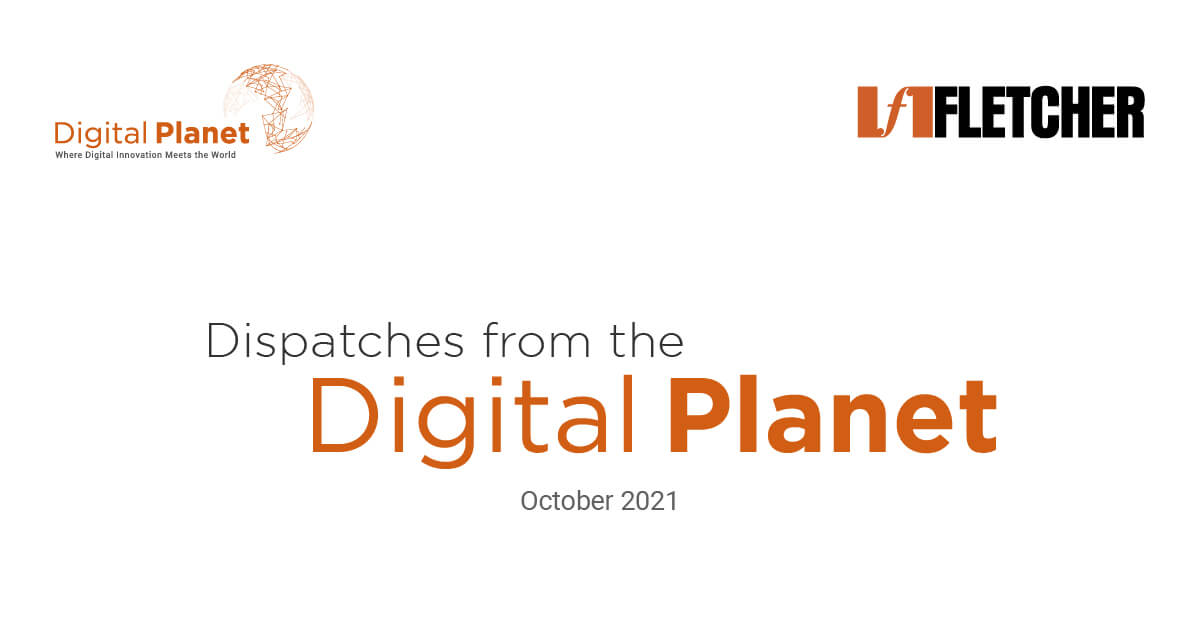
Dispatch from the Digital Planet is a monthly bulletin that talks about new updates in digital innovation across the world and their impact.
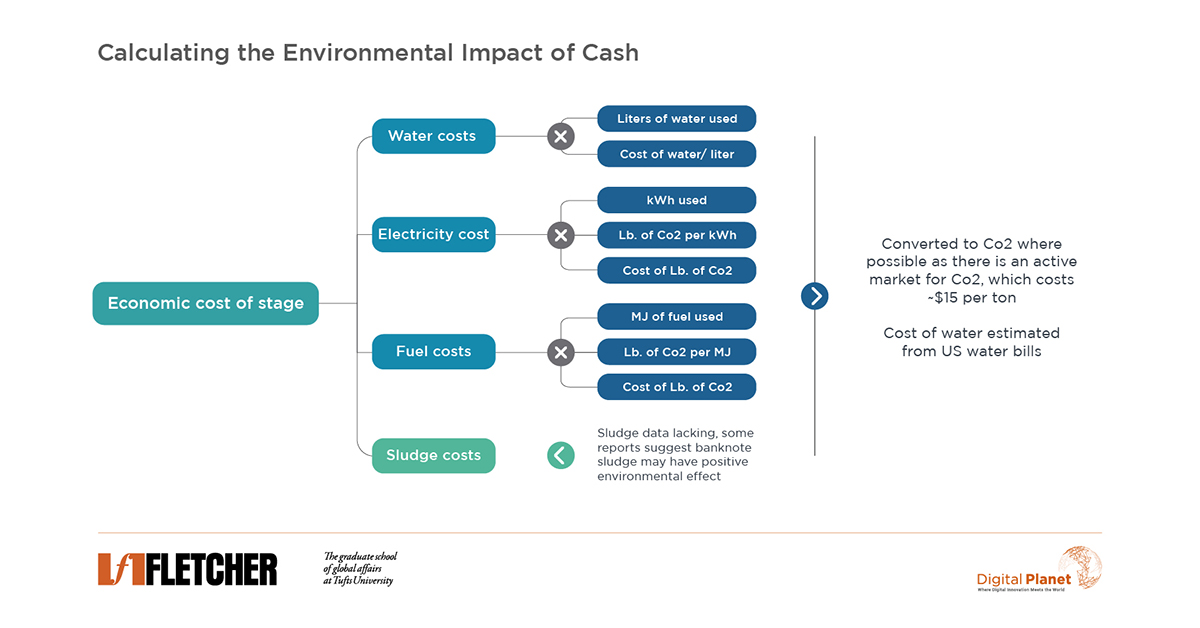
Value storage has costs: US cash notes at $0.26 each vs. Bitcoin’s $70 per coin CO2. Despite Bitcoin’s higher cost, cash notes’ total impact ($12.9B USD) far exceeds Bitcoin’s ($1.3B USD).

In this episode of ‘Special Series with Dr. Punita Kumar Sinha speaks with Bhaskar Chakravorti, as he delves into the intricacies of Big Tech and its pros and cons.

Data from Digital Planet’s Digital Intelligence Index (DII) is mentioned in this article about the lack of accessible broadband services in South Sudan.
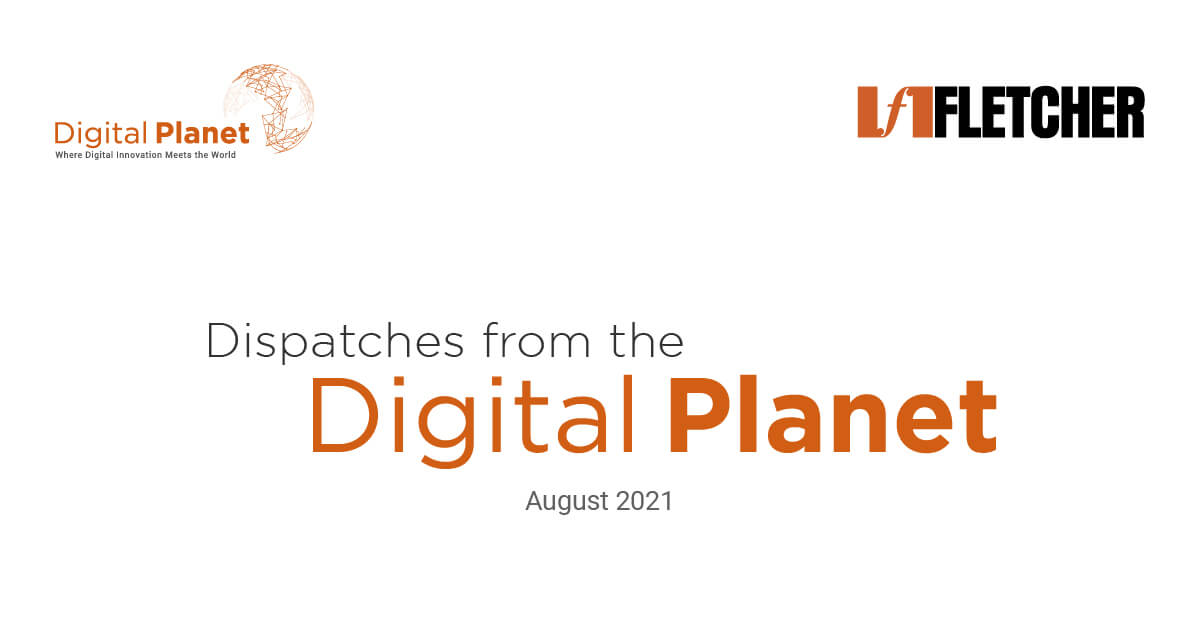
Dispatch from the Digital Planet is a monthly bulletin that talks about new updates in digital innovation across the world and their impact.

Why the tech giant is on the wrong side of history yet again.

Tech giants ponder giving Taliban social media. Concerns: free speech, harm, Taliban’s image, retaliation, risks. Challenging decisions ahead.

Data about Hong Kong’s ranking on Digital Planet’s Digital Intelligence Index (DII) is featured in this article about tech opportunities in Korea.
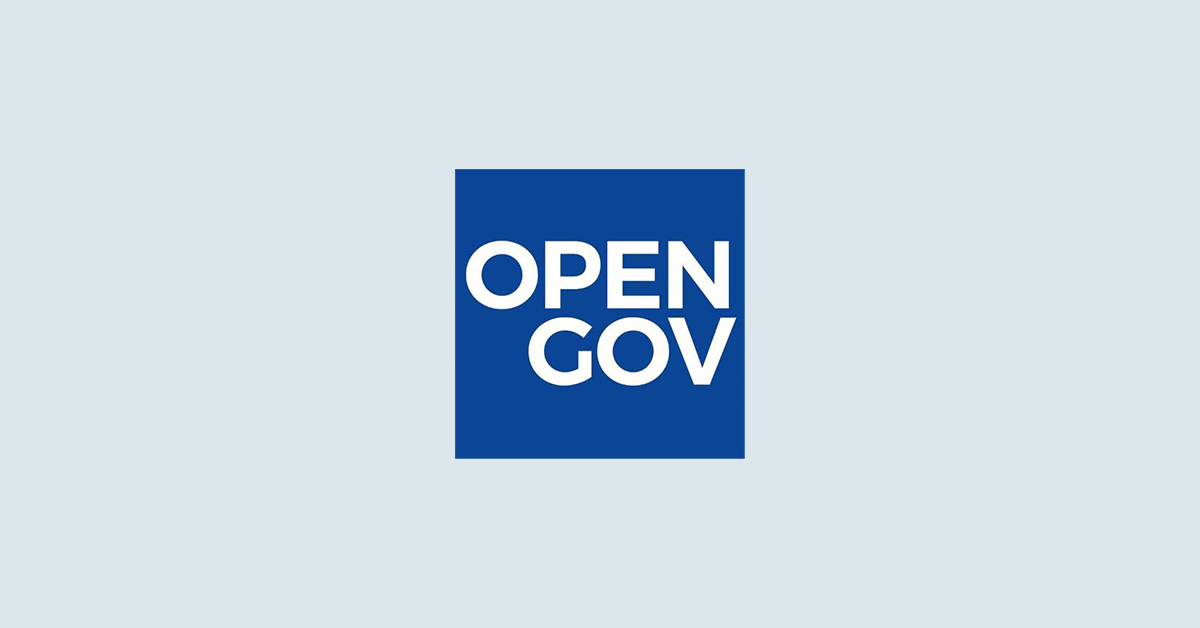
Digital Planet’s Digital Intelligence Index (DII) is mentioned in this article about the development of digital payment technologies in Hong Kong.

Italy’s ranking on Digital Planet’s Digital Intelligence Index is mentioned in this article about the rise of FinTech companies in the country.

A handful of companies have outsize influence on the world’s artificial intelligence. Policymakers must act now to stem the rise of powerful monopolies.

Bhaskar Chakravorti comments on U.S. government antitrust legislation to restrict mergers and acquisitions by dominant Big Tech platforms and the potential impact on smaller start-ups.

Bhaskar Chakravorti comments on the potential impact of the Federal Trade Commission’s vote this week to rescind a 1995 statement that loosened merger review reporting requirements.
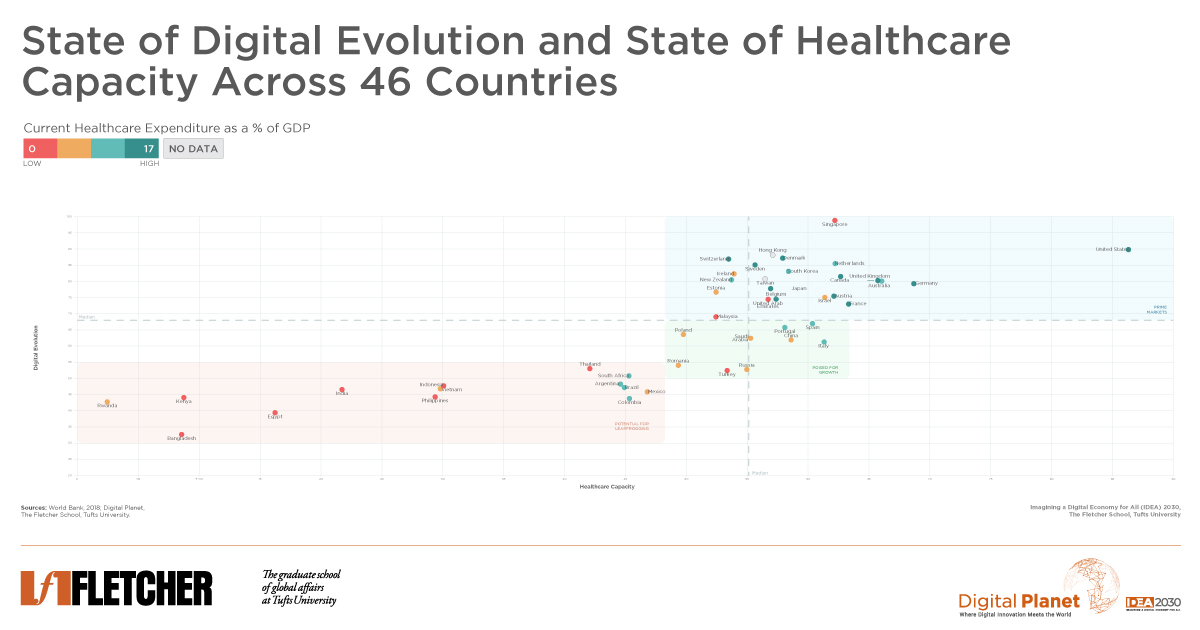
Global healthcare digitization varies wildly. Our study in 46 countries identifies virtualized healthcare opportunities, enabling lagging nations to leapfrog with digital tools for quality care.
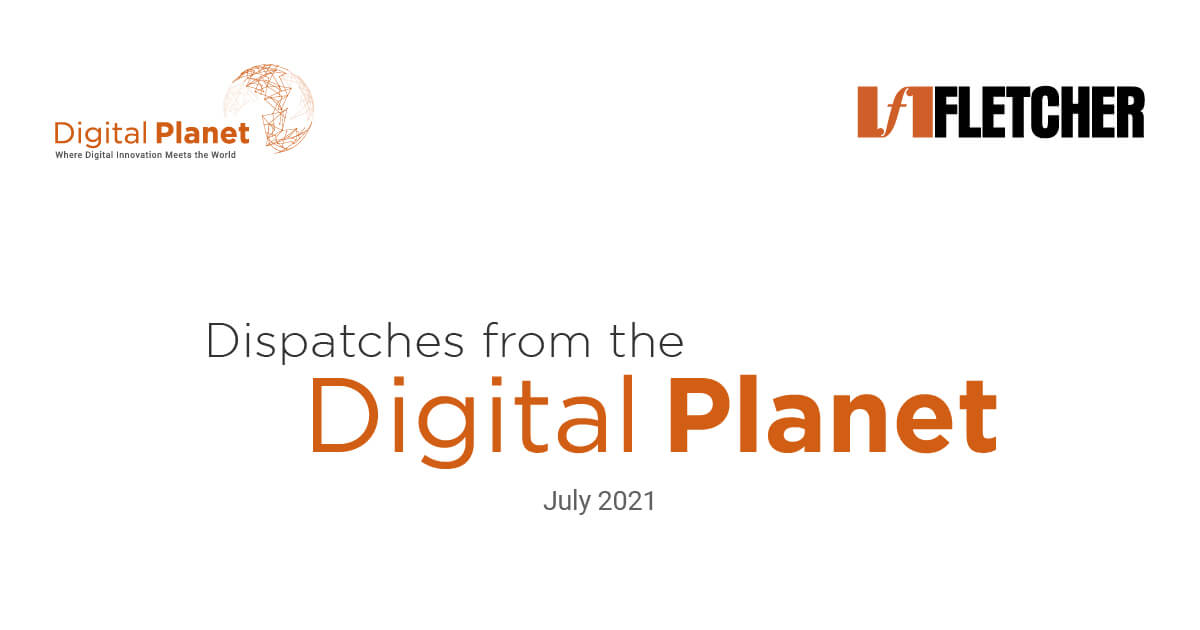
Dispatch from the Digital Planet is a monthly bulletin that talks about new updates in digital innovation across the world and their impact.